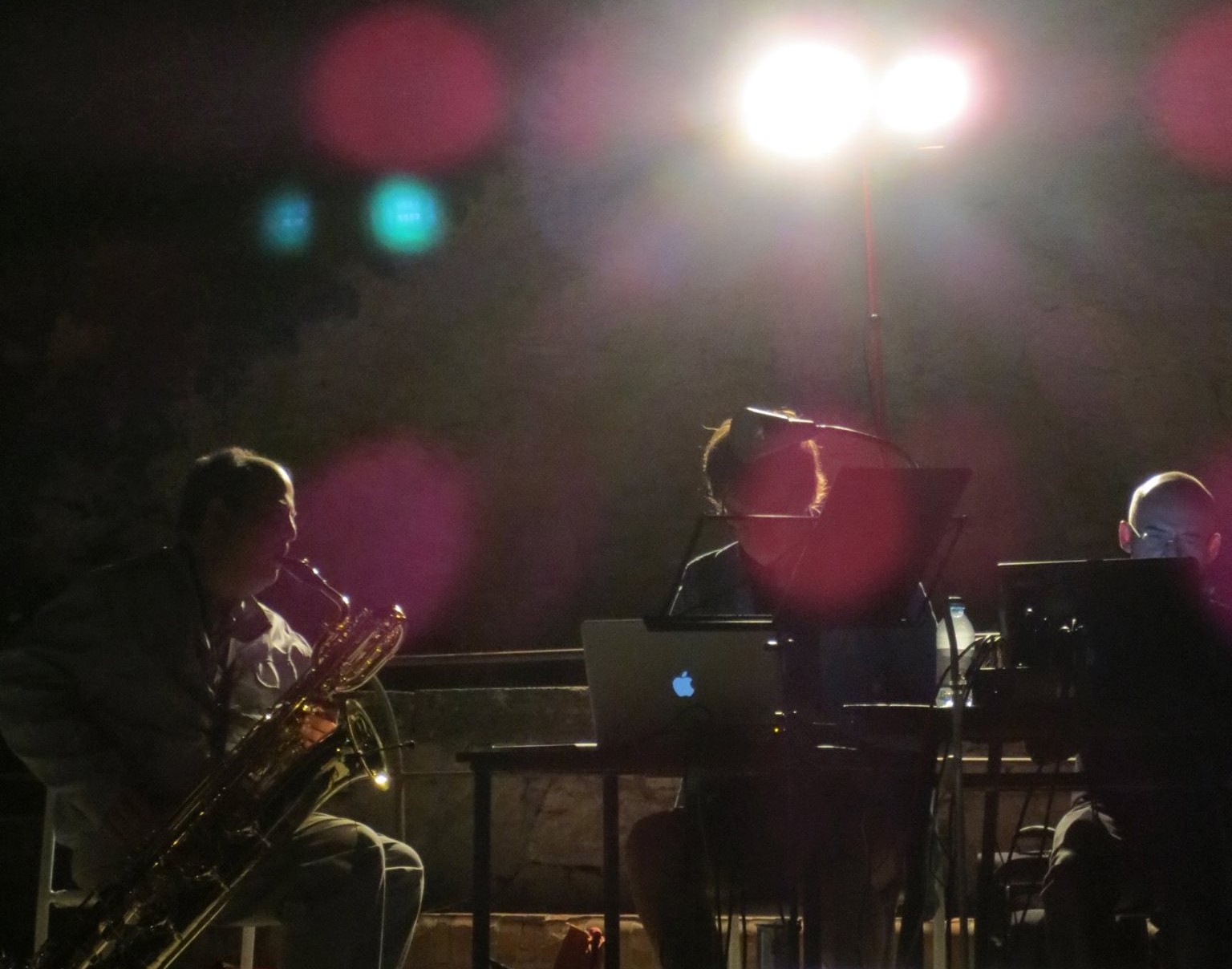composition, improvisation, software
-
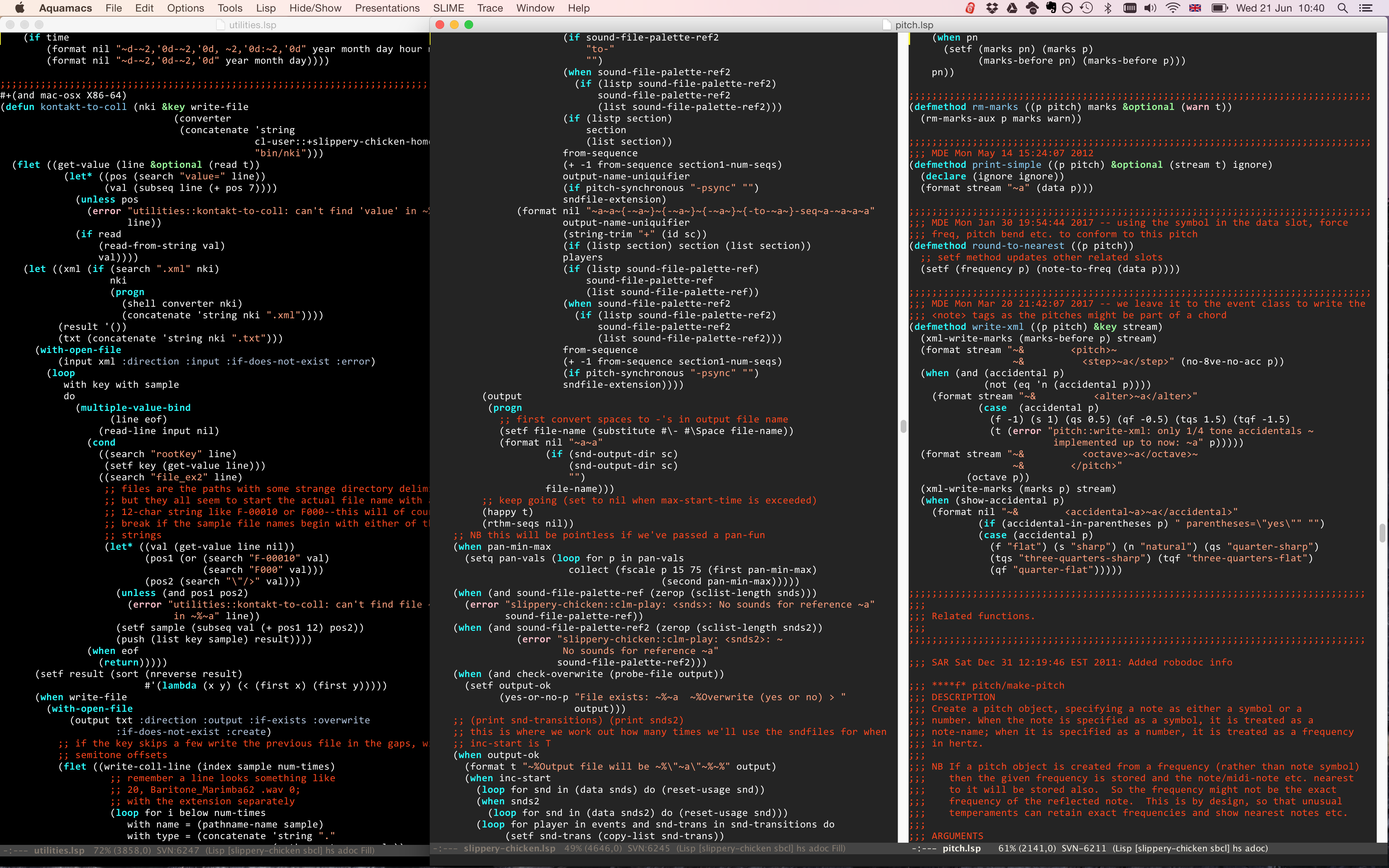
Porting slippery chicken
First of all I should say that there are no current plans to port slippery chicken. But: A humourously intended (though sarcastic: you know who you are!) post on my Facebook page asked me why my algorithmic composition software is written in Common Lisp and not something more modern (and Lisp-inspired) like Python. My first response might be…
-

hyperboles 3 in Montreal
Quasar Quartet, Le Gesu, Montreal, Canada, 19/1/17: It was disappointingly warm in Montreal. I’d promised Martin temperatures of -20C and below (it reached -33C on my last trip) but it hovered around zero for the duration of our seven-day stay this time (reduced by a day due to cracks in our airplane’s windscreen—glad that happened…
-
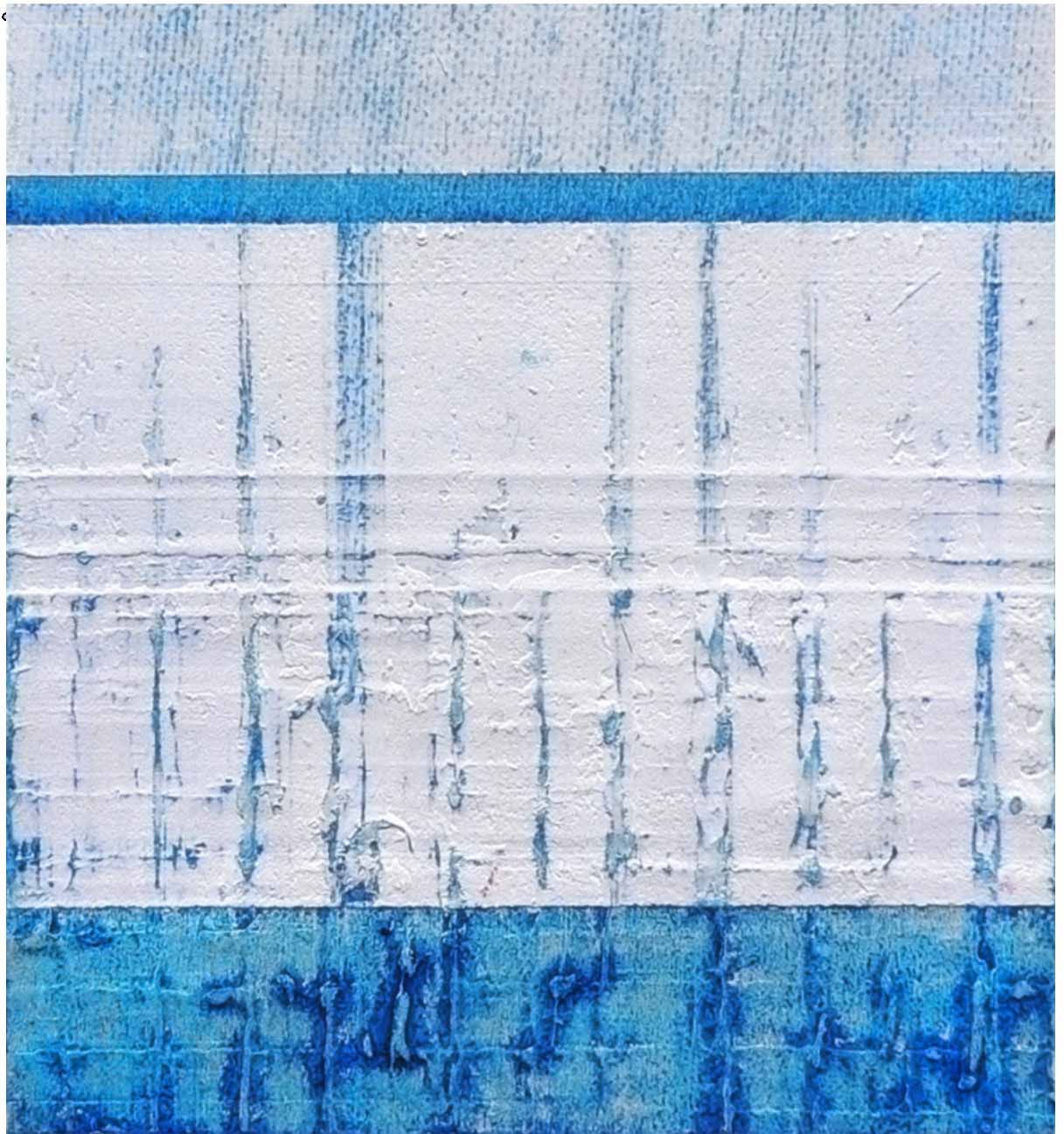
for rei as a doe: the making of the video: an online interview with the artists
Below is an interview I initiated online with the artists who made the above video to my algorithmic composition for rei as a doe. CI = Chante Inglis (animation) CL = Colin Lawson (painting) KS = Karin Schistek (piano) ME = Michael Edwards (composition) ME: What drew you to make a video to this music?…
-
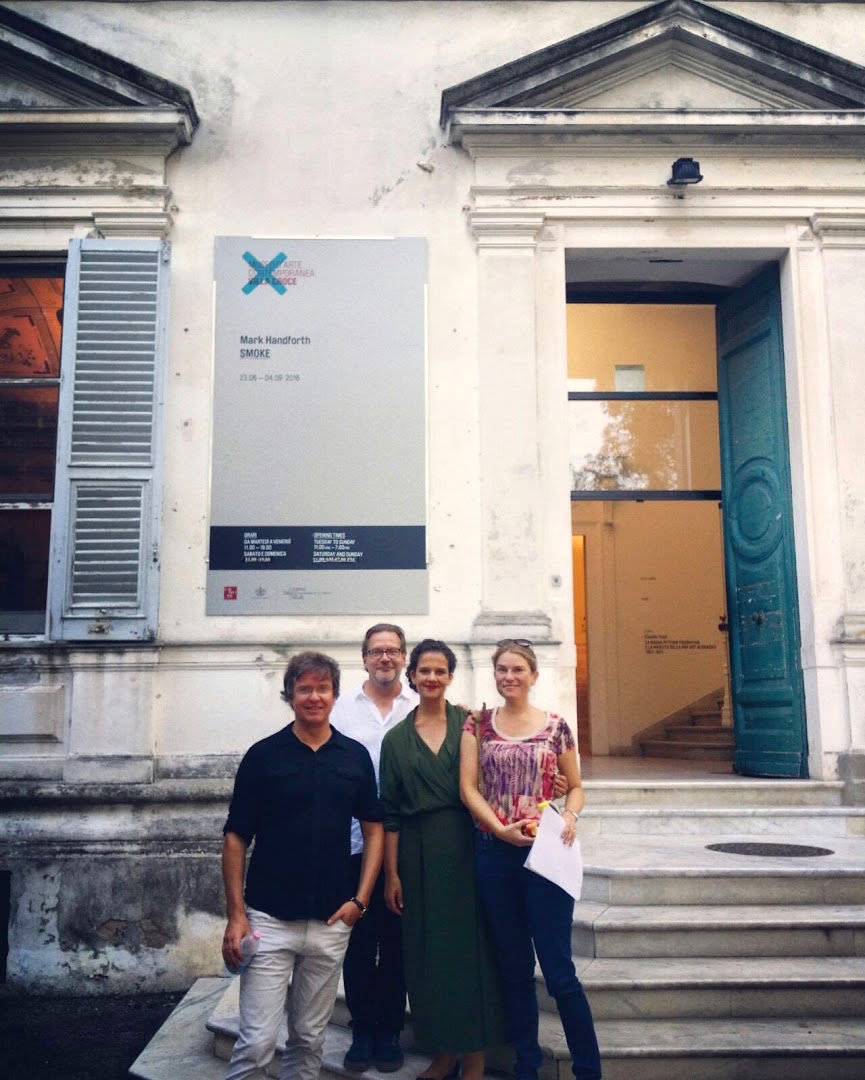
for rei as a doe, with video, in Genova
I’ve just returned from teaching algorithmic composition for a week at the Conservatorio Statale di Musica “Niccolò Paganini” in Genova, Italy. It was a pleasure to meet and work with Professor Roberto Doati’s composition class, as well as to play with some of them in a concert on September 7th that begain with a free improvisation for a group of…
-

Control Waves and Guest Professorship at the Folkwang University, Essen
I’m just coming to the end of my second week of teaching in the Institute for Computer Music and Electronic Media (ICEM) at the Folkwang University of the Arts in Essen, Germany. It’s a pleasure to be here, working with the dedicated and friendly students and staff. I’ll be a Guest Professor until the end of 2016 and…
-
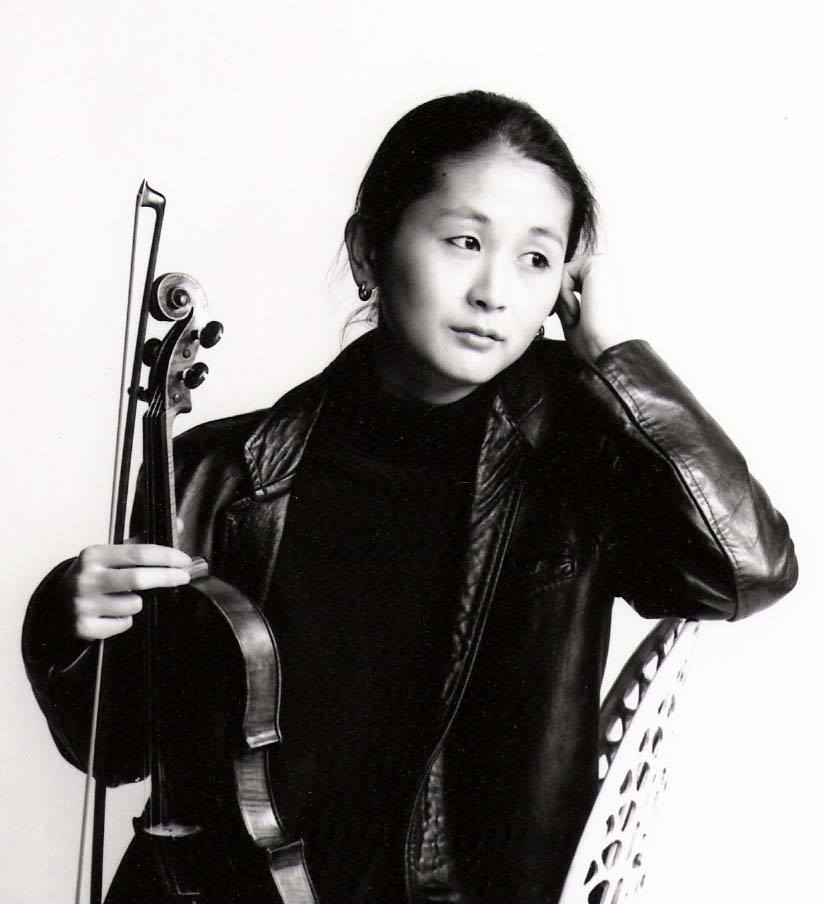
timing accuracy in hyperboles 2
Those present at the St Giles Cathedral, Edinburgh performance by Mieko Kanno of my hyperboles 2 (“until the cherries burst in the orchard”) on 20/5/16 were very patient. I told the audience that this violin plus computer piece would last 52 minutes but after the performance Dario Sanfilippo, who did the lights, told me it was more like…
-
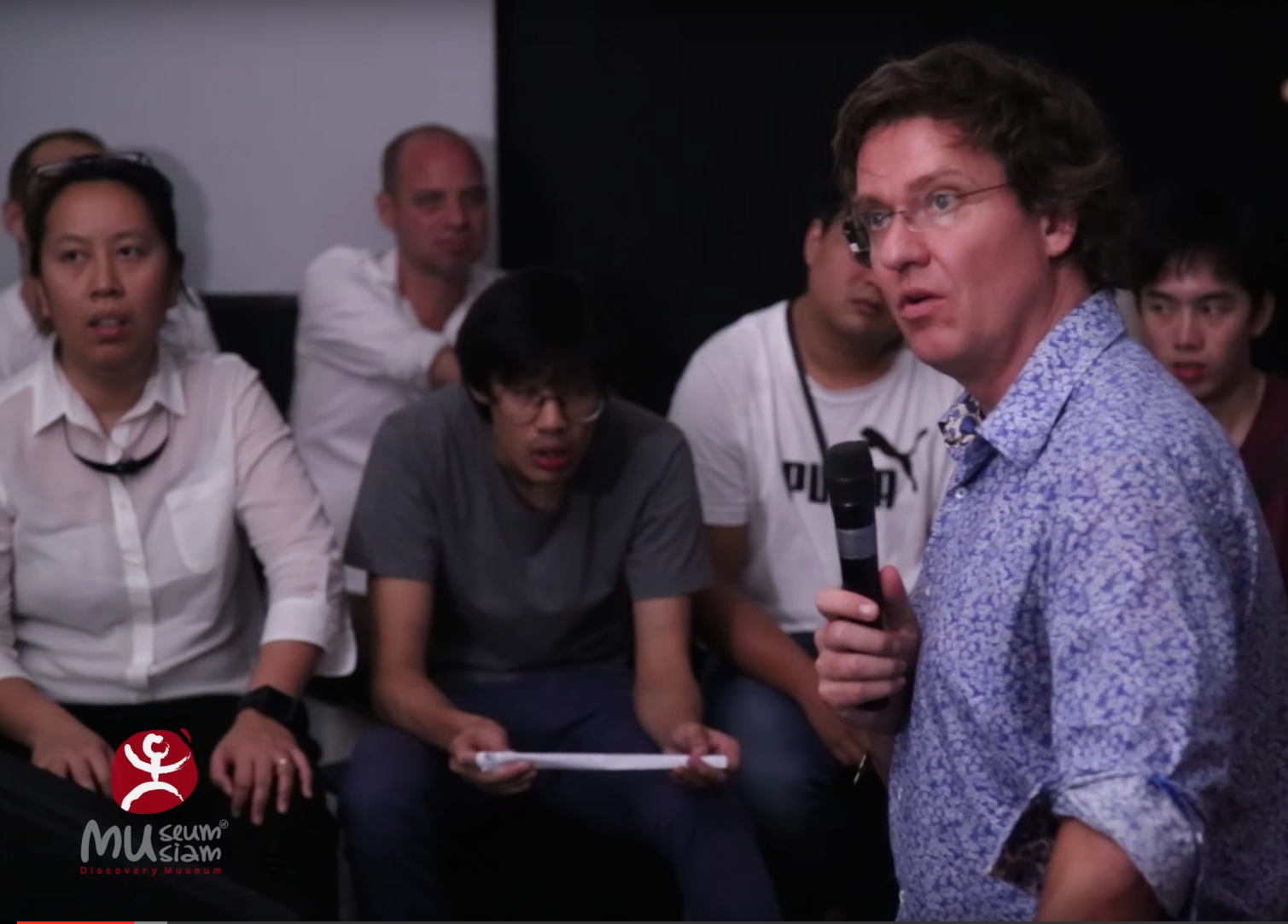
Bangkok Thoughts: post-concert Q&A
Whilst searching online forY/Our Music, Salee Art Every’s excellent film about Thai music, I stumbled across a complete recording of the post-concert question and answer session we did at Museum Siam on November 29th 2015, after the premiere of my jitterbug project. I’m always amazed at the concentrated and extended attention Thai audiences pay at events such as these.…
-
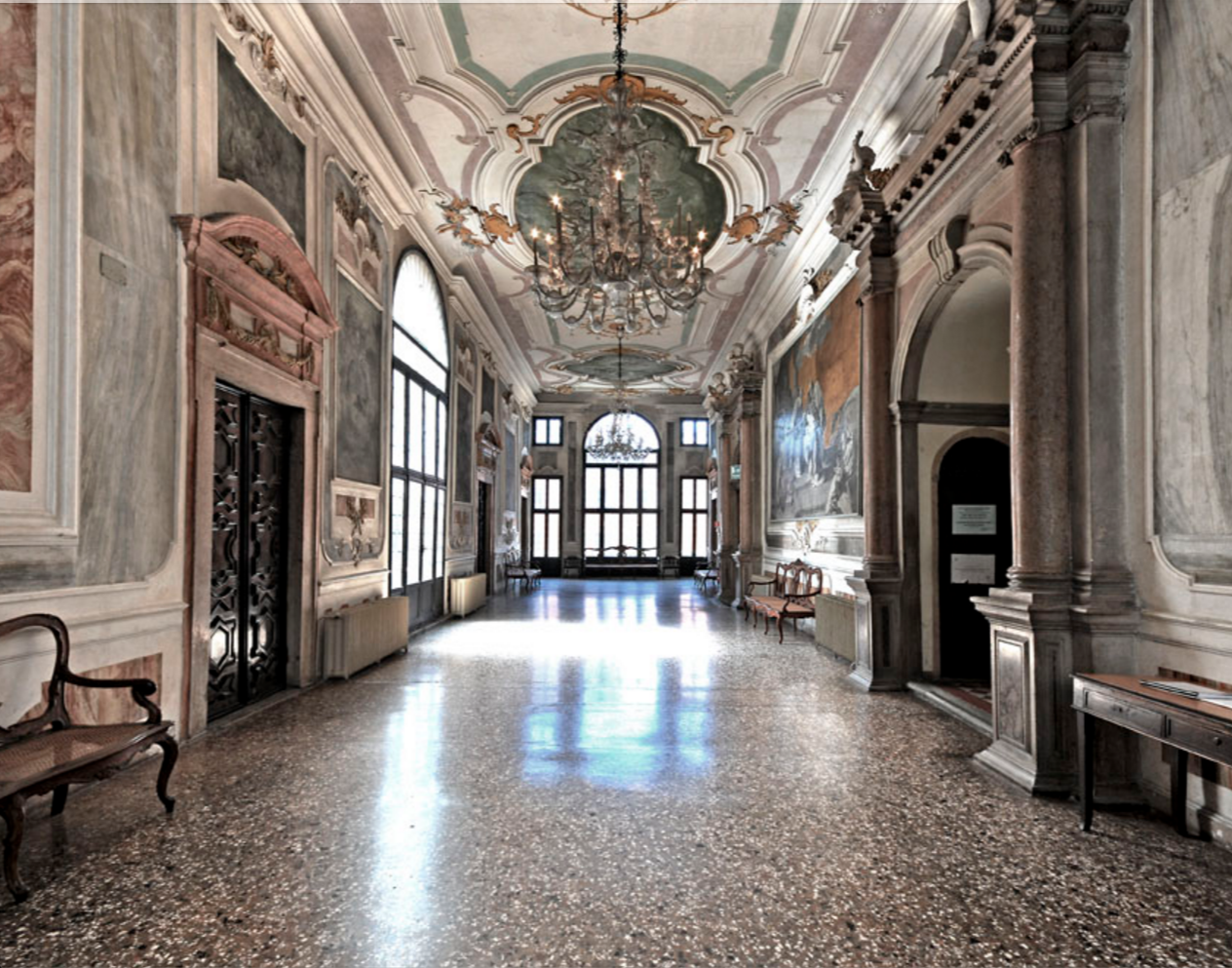
Masterclasses in Venice
The week of March 28th 2016 saw me giving saxophone and electronics masterclasses with Gianpaolo Antongirolami at the Conservatorio di Musica “Benedetto Marcello” in Venice. We were guests of Massimo Marchi and Paolo Zavagna, professors of electronic music (and excellent hosts) in Venice. I’d be hard pressed to think of a more beautiful place than this to…
-
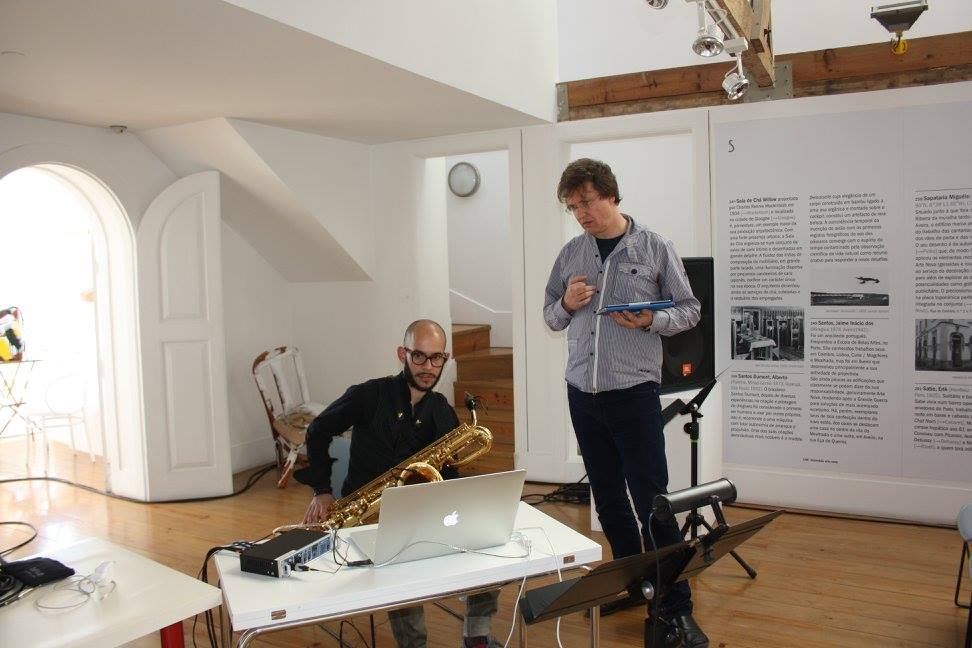
Portrait concerts in Aveiro, Portugal
It was a pleasure to be a guest and one of the featured composers of the AVEIRO_SÍNTESE 2016 festival and the Dias De Música Electroacústica in Portugal earlier this month (5-10 April). We did a portrait concert in Aveiro and Seia featuring five pieces of mine (two 4-channel fixed media, three instrument plus electronics) spanning the years…
-

piano music and cross-staff notation
Anyone who has input a piano score into notation software knows that it’s not so easy as, say, creating a woodwind part. First of all there are chords, then you have two staves, on top of which you might have multiple parts per stave, and on top of that you might have groups of beamed…
-
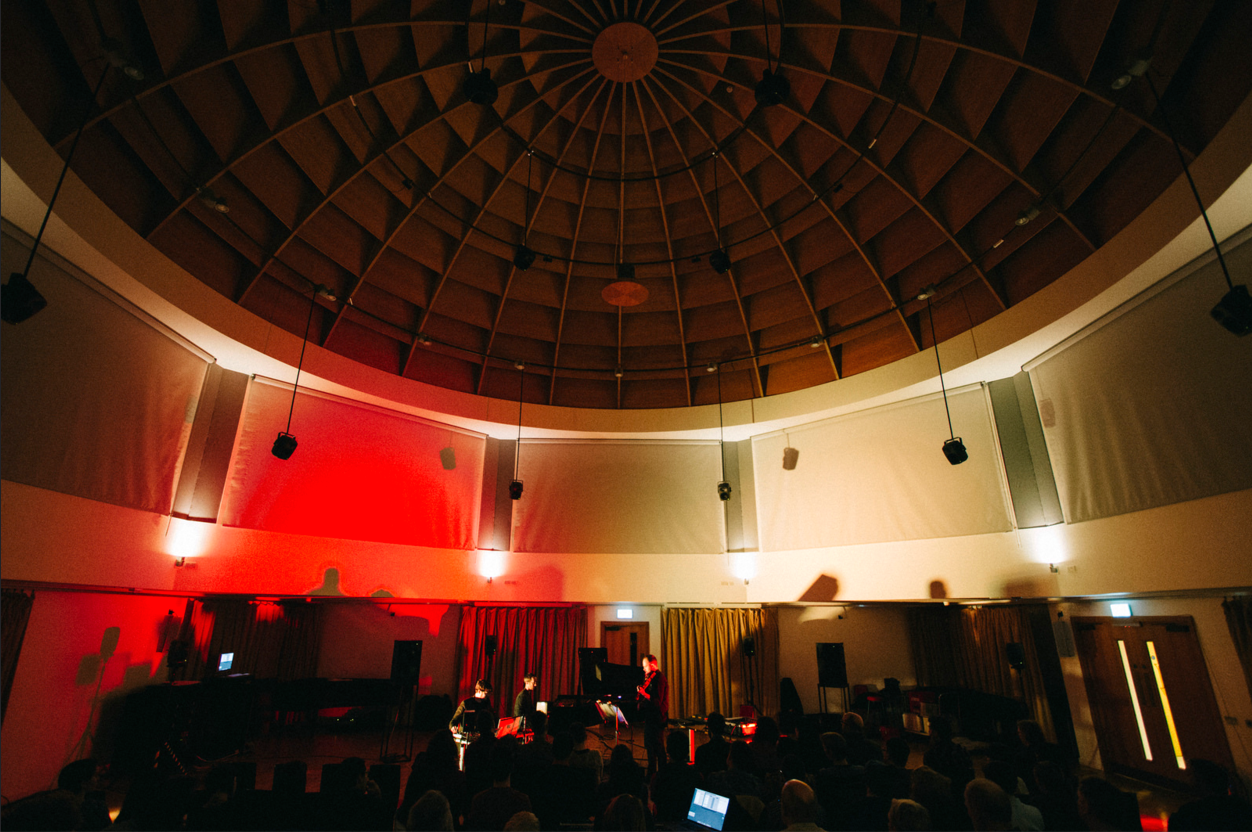
premiere of hyperboles 5, Birmingham
Ellen Fallowfield and I outed the latest version of my hyperboles project last weekend at the Crosscurrents Festival in Birmingham. After two days of intense rehearsals and development it was a real pleasure to play in the Dome of the Bramall Music Building. Scott Wilson and Annie Mahtani’s team are continuing and developing the Birmingham Electroacoustic Sound Theatre tradition…
-
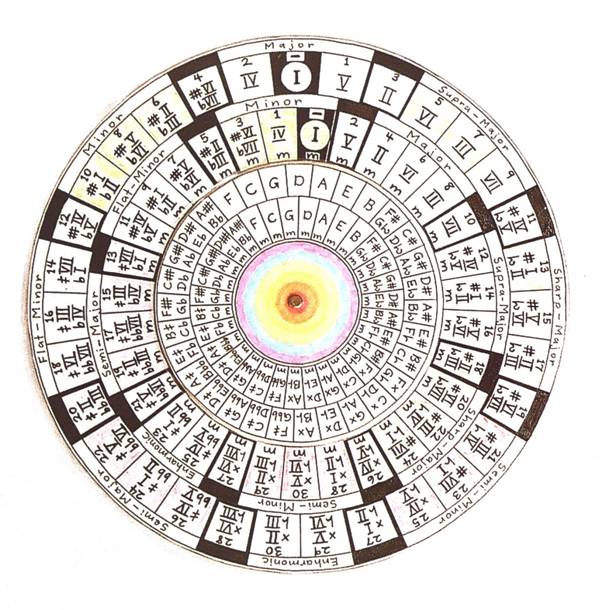
using auto-sequence to order chords: part 1
slippery chicken’s automatic chord sequencing algorithm creates an ordering for a set-palette’s sets (or chords) based on user-given dissonance and spectral centroid envelopes. The terms set and chord here will be used interchangeably to mean essentially the same thing (a collection of pitches to be used harmonically), though in both music theory and in slippery…
-
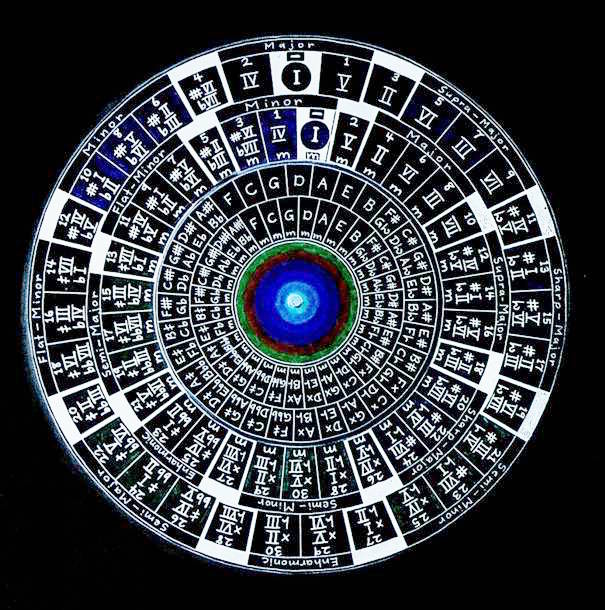
using auto-sequence to order chords: part 2
Back to part 1 auto-sequence examples and analysis The following examples process a set-palette created from a harmonic reduction by Emilios Cambouropoulos of Messiaen’s Quartet for the End of Time (Quartet VII).* The examples intermingle explanations of Common Lisp code and print statements with music notation output created directly from calls to slippery chicken’s Common Music Notation…
-
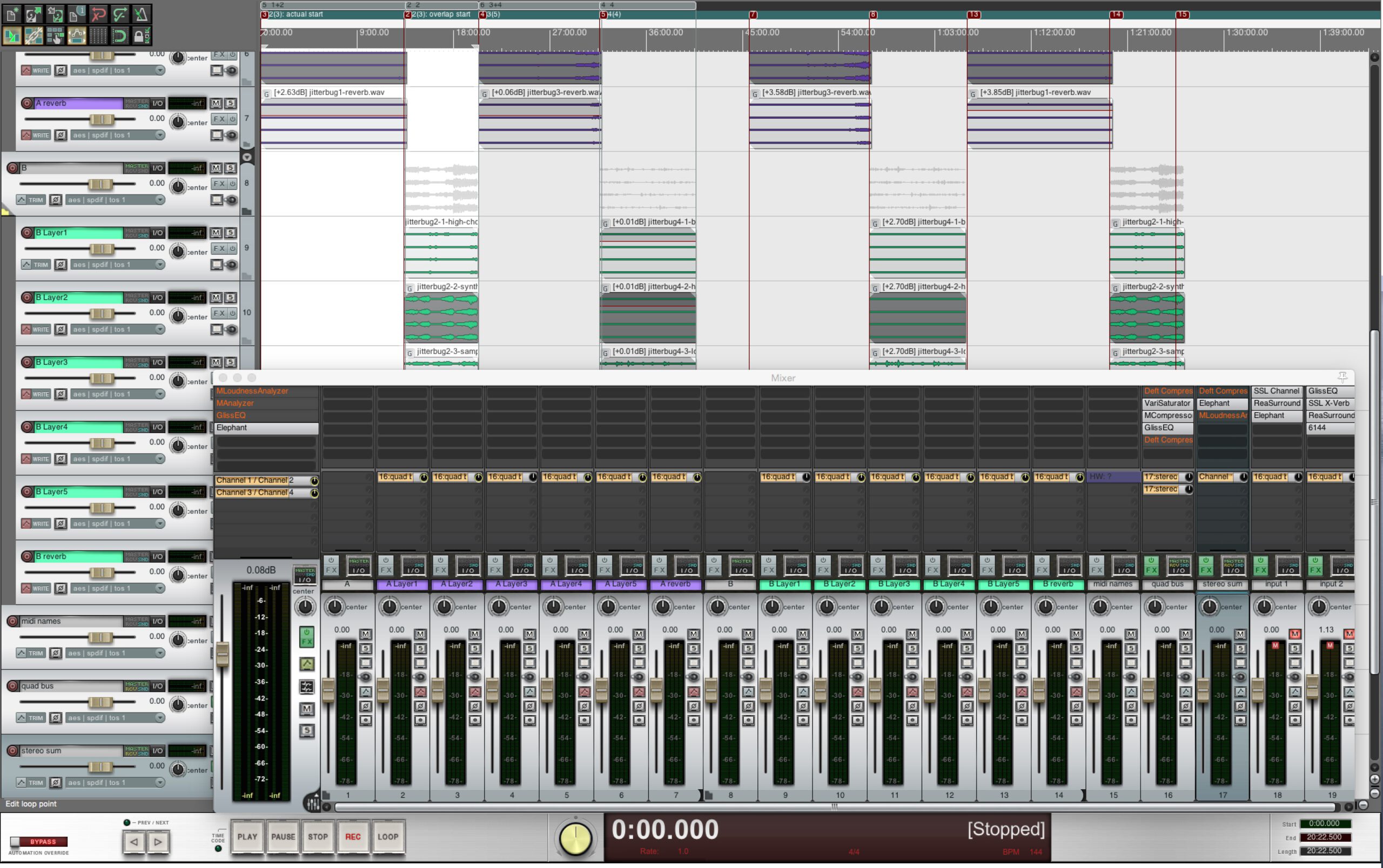
The use of Reaper and MIRA in jitterbug
jitterbug is a four-movement four-channel work/album for computer, with or without improvising musicians. It is documented more generally but in detail in another blog post. Here I’m going to concentrate on some aspects of the use of Reaper in both the production and performance of this 40-minute work. I’m turning to Reaper more and more…
-
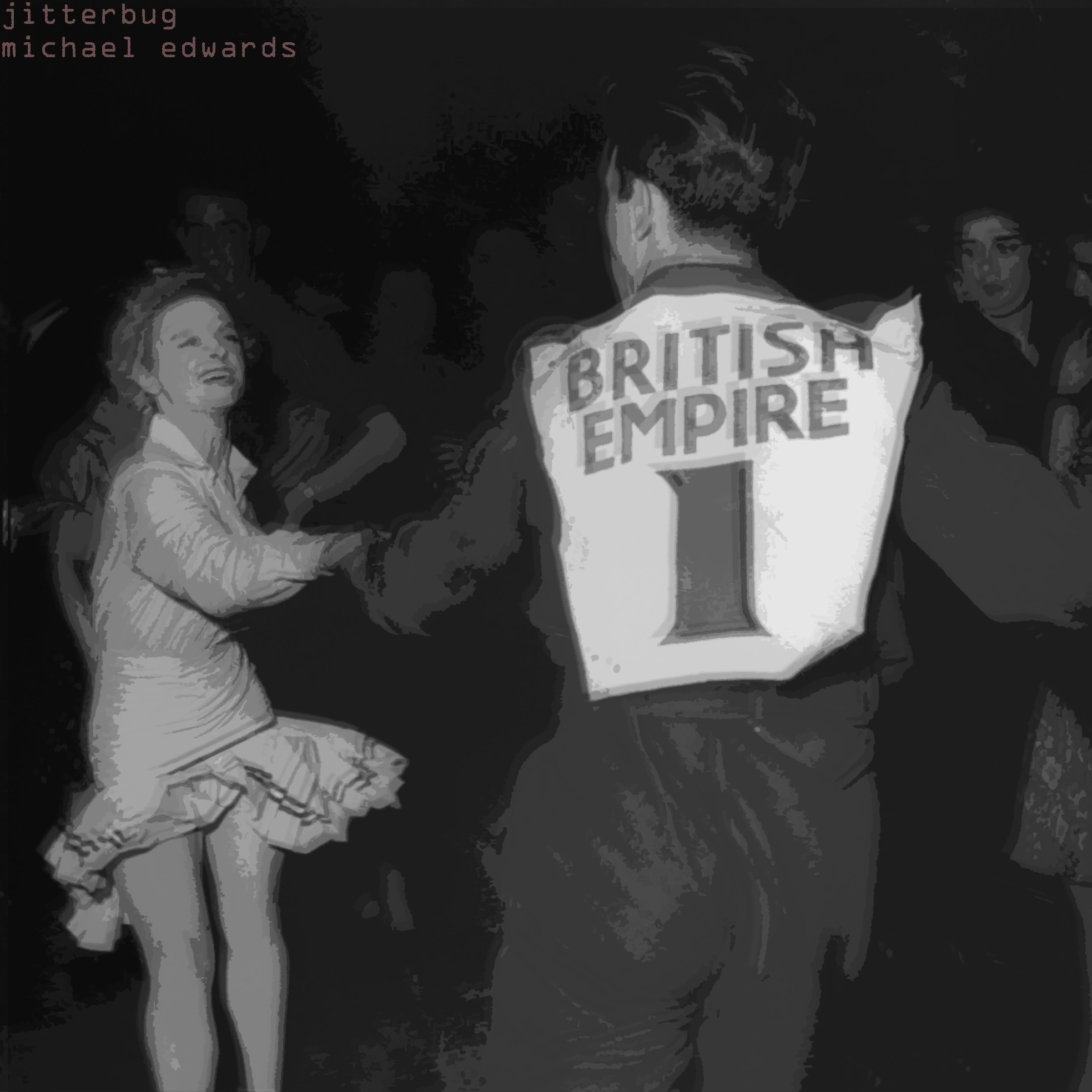
jitterbug
(aka four views of a rhythmic-structural procedure based on iterated proportions of 6:3:5:4) jitterbug is a four-movement four-channel work/album for computer, with or without improvising musicians. It was created with my slippery chicken algorithmic composition software and premiered at Museum Siam, Bangkok, on November 29th 2015 as part of the As((ear))n exhibition of…
-
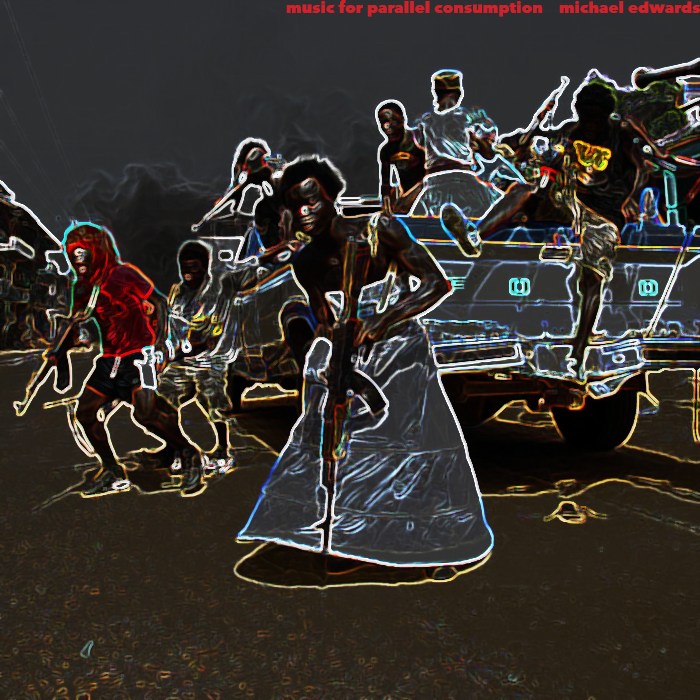
Music for Parallel Consumption: An open-ended self-reconfiguring musical composition as app
Composed in 2010 but not released until some final polish was applied in 2015, Music for Parallel Consumption is a 4-channel digital composition made for delivery and playback via a custom computer app. The title refers only partially ironically to the tendency to consume music as part of a backdrop to our otherwise-engaged lives. At the same time as offering…
-
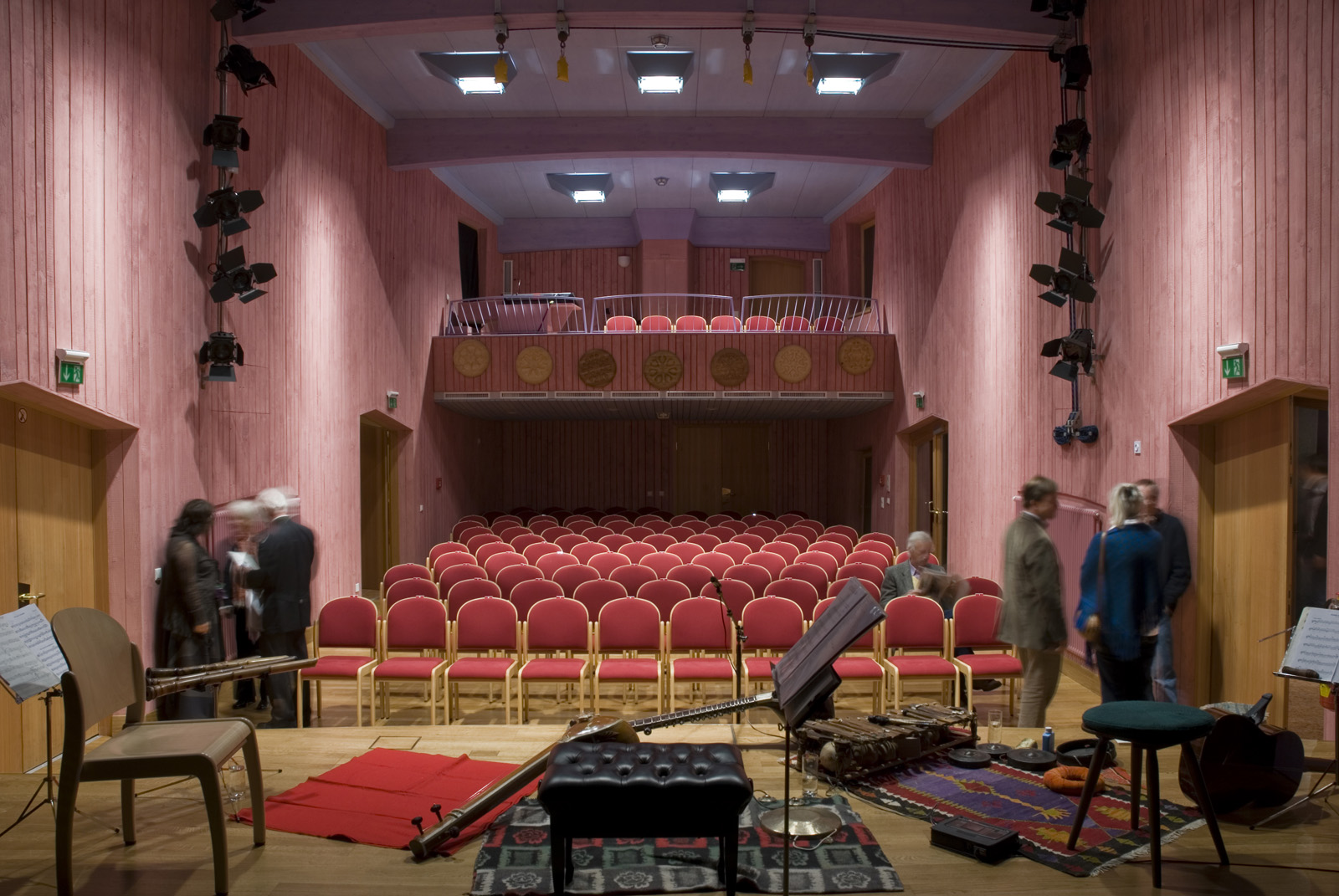
Meditation ∫ Music, Salzburg
It was a pleasure to be invited to Seda Röder’s inaugural Sonophilia event on August 15th. This took place just outside of Salzburg, Austria, at the Cultural Centre of St. Jakob, pictured above. With a focus on the transformative power of music and meditation, the day’s events provided opportunities to engage in mindfulness-centred approaches to…
-
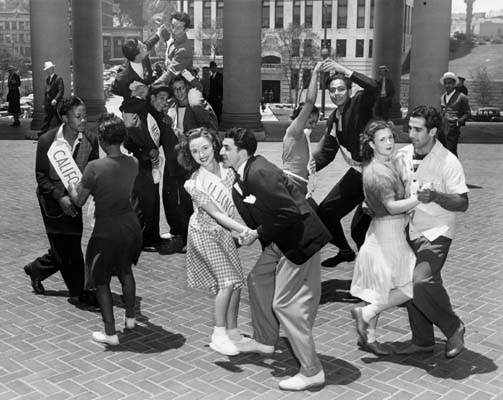
Keep it Simple: Complex Rhythmic Notation in Common Lisp
No, this isn’t a polemic against complex rhythmic notation or the New Complexity. Since the 80s I’ve been a fan of such music, even if as a composer I don’t generally employ its techniques. Most of the arguments against “impenetrable” rhythmic complexity have been demolished by the simple passage of time coupled with a continued interest in…
-
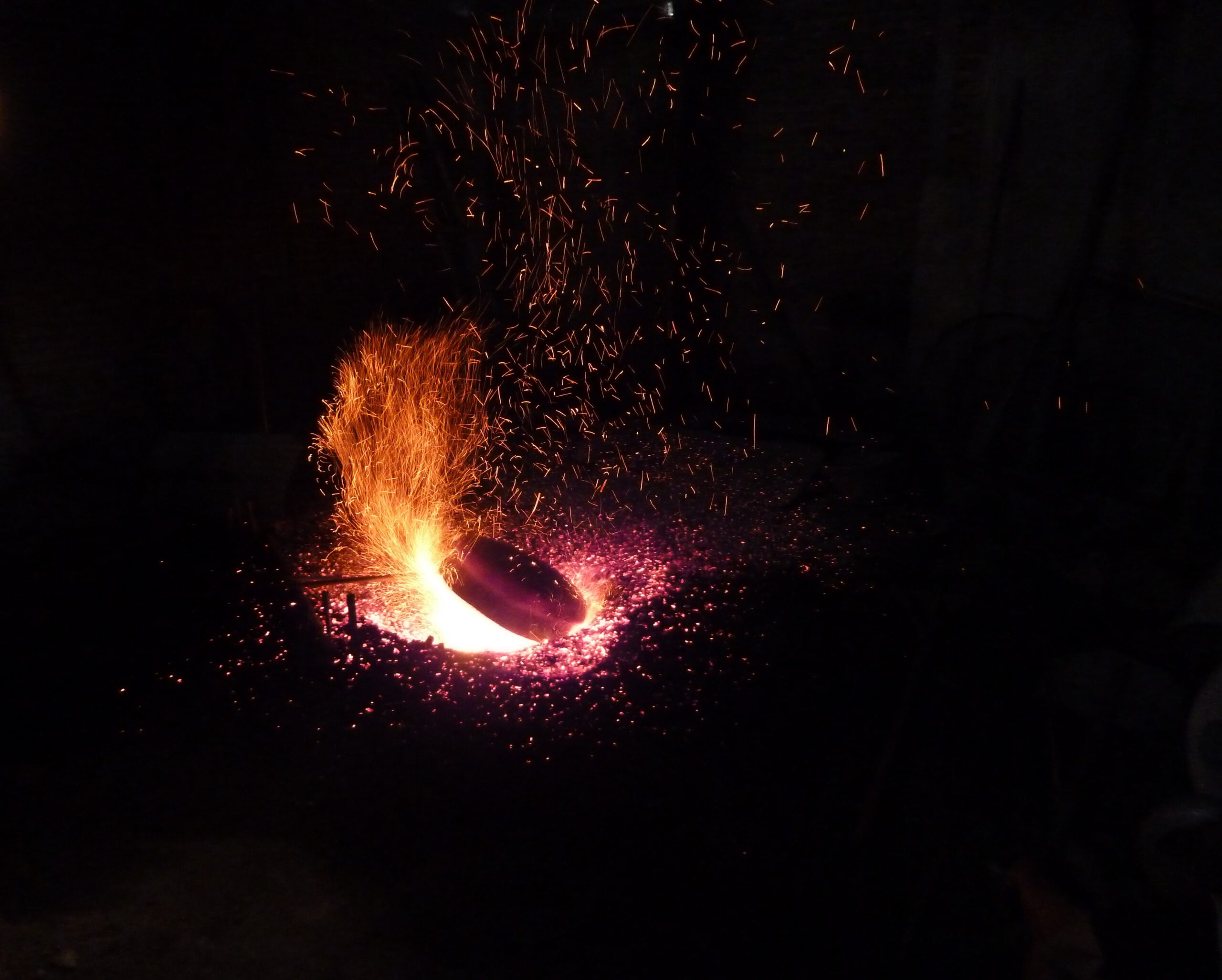
Music for Parallel Consumption
Update, January 2016: This project has now been released on bandcamp It’s a lovely word but a little overused by self-help and marketing gurus: serendipity. Those familiar with talks on my slippery chicken algorithmic composition software are no doubt aware of the claims I make for the explorative potential of such systems. I argue…
-
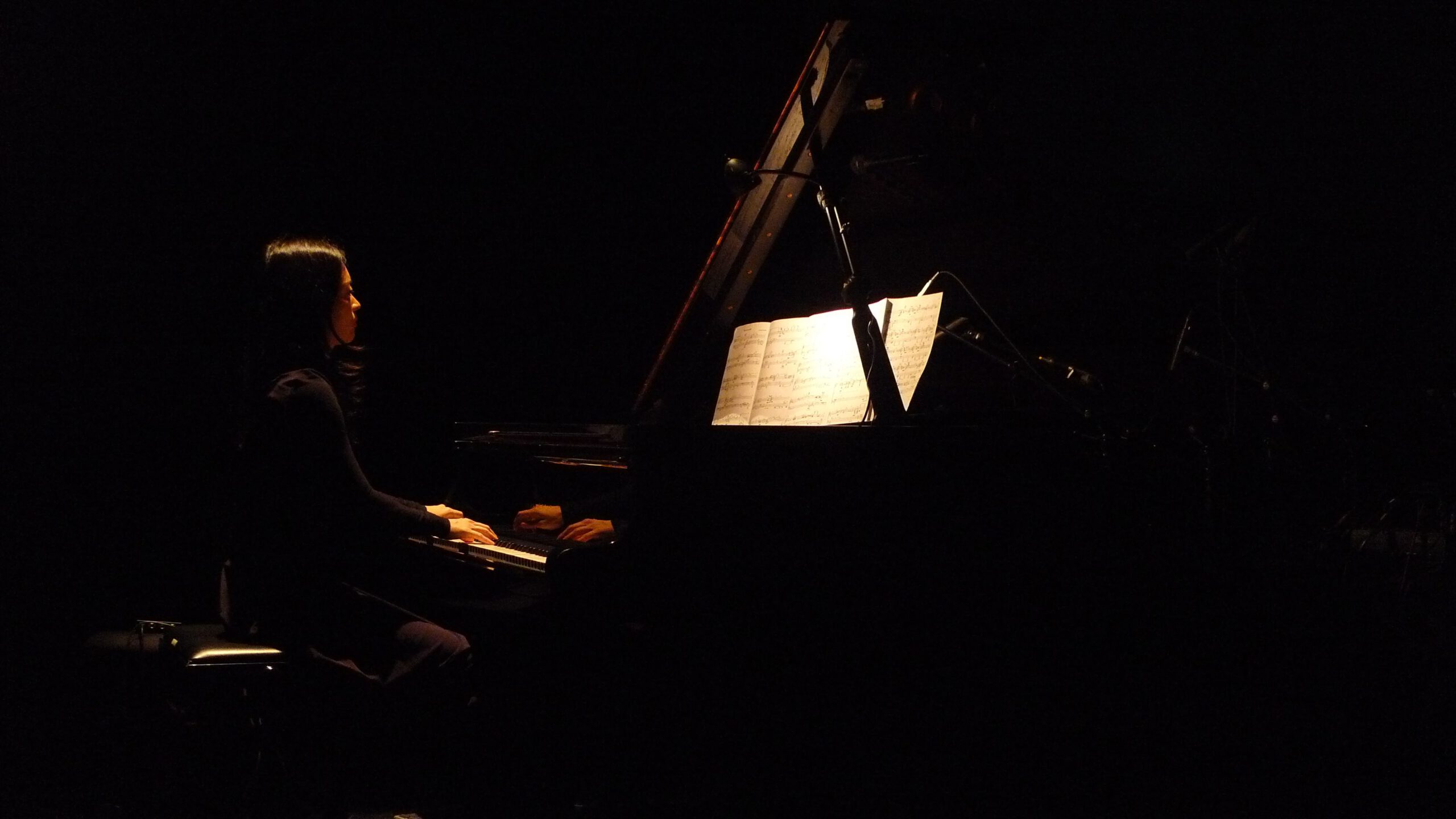
for rei as a doe: annotated timeline
Artists Colin Lawson and Chante Inglis are working on a video using Colin’s paintings as visuals alongside my 40-minute piano and computer piece for rei as a doe. This has already been documented but in order to give Chante and Colin some orientation points in this long work I did an analysis of the pre-compositional structuring, in…
-
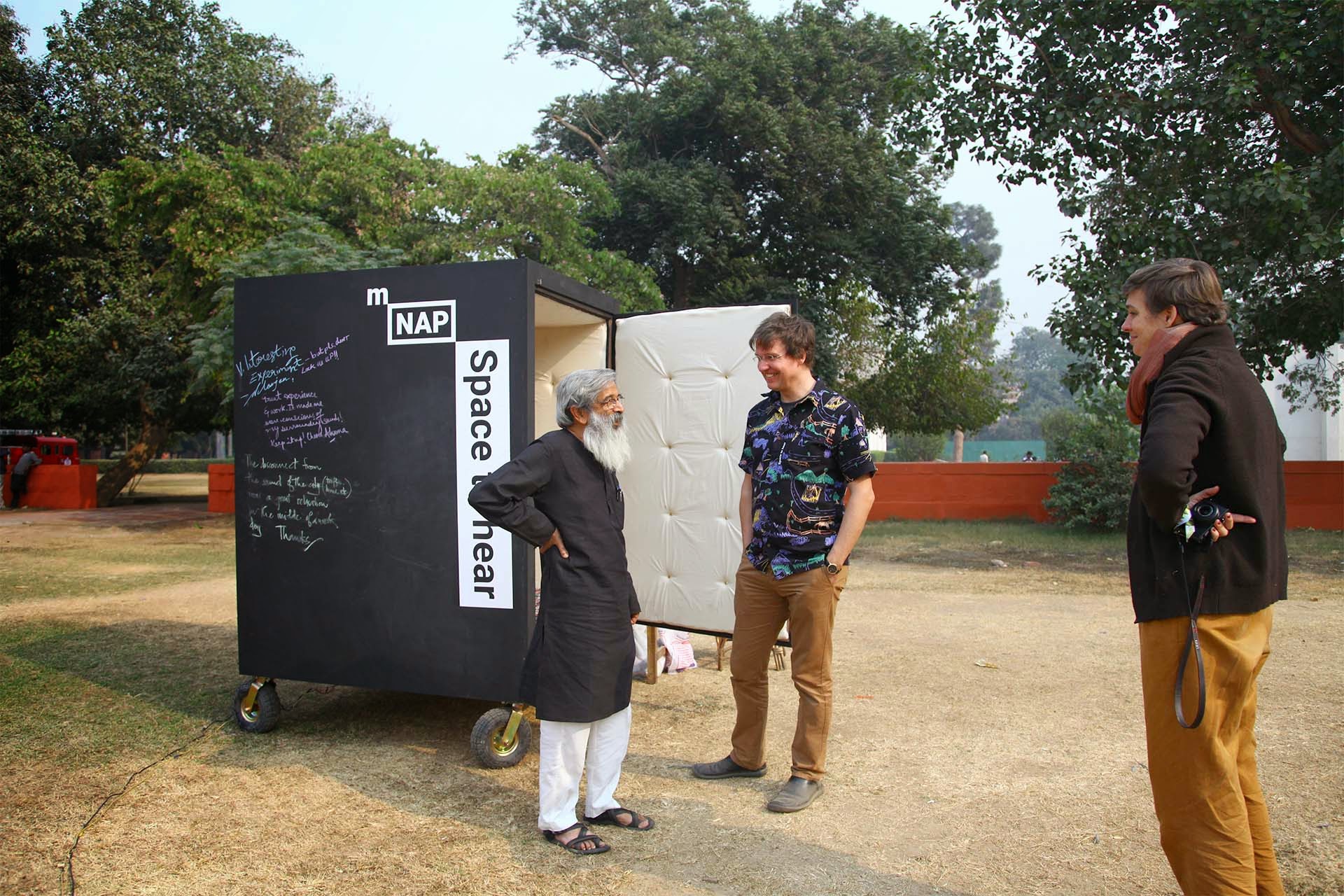
mNAP video, New Delhi
All the transcriptions are done, the analysis is complete, and now we have Shradha Jain’s video of the project I did in Delhi at the end of 2014: More information on the project is at https://sites.eca.ed.ac.uk/mnap/
-
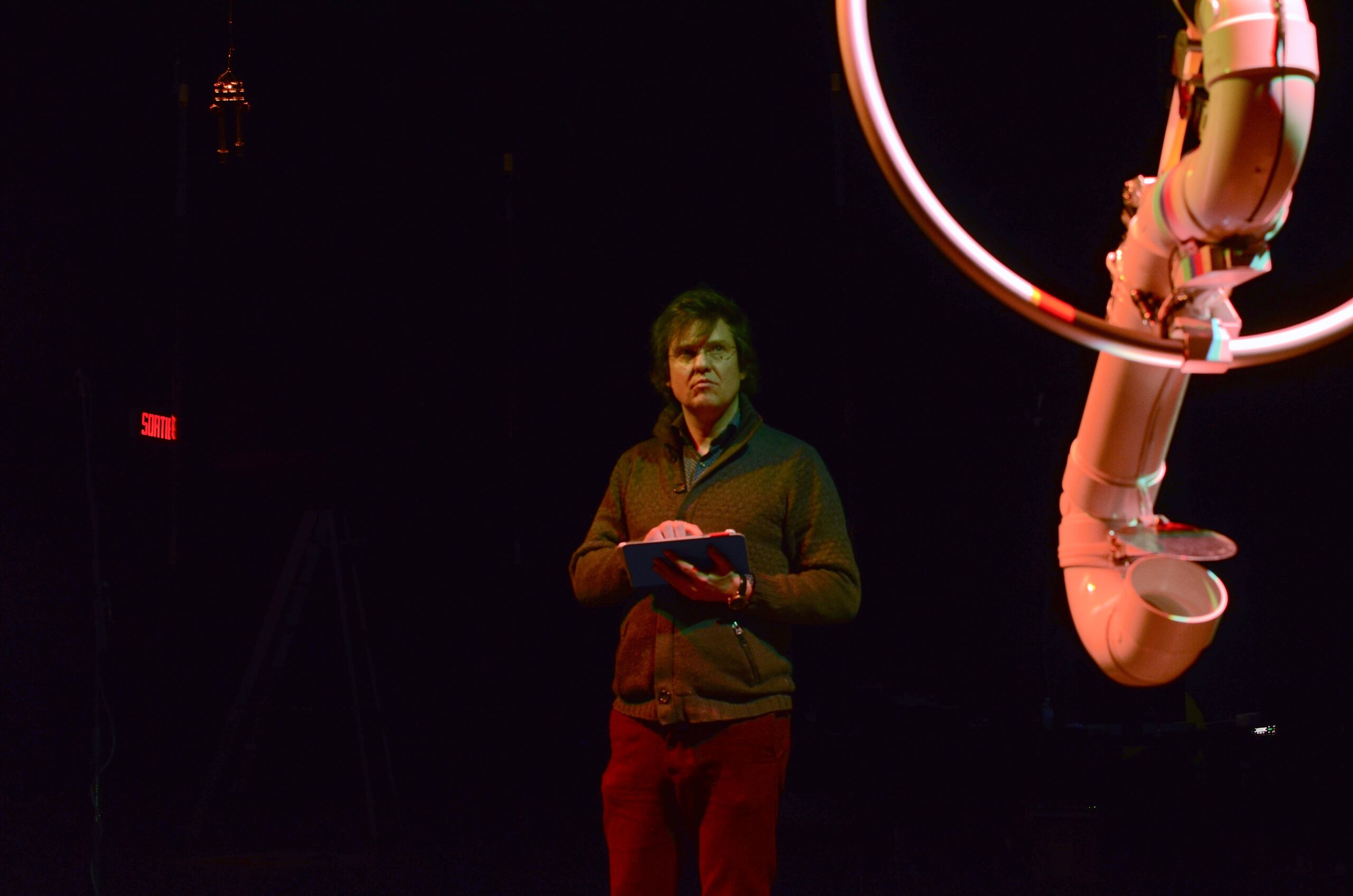
hyperboles 4 – the extremities of cold, Montreal
My hyperboles project saw a new iteration in Quebec last month. Performances of hyperboles 4 (“insomniac rain”) took place in Canada, on February 25th courtesy of the festival Mois Multi 2015 – Spectacles in Quebec City, and on March 1st at the Montreal Nouvelles Musiques festival. Programme Note Humans exaggerate on a regular basis. Typical hyperboles might be “this…
-

The mNAP sound installation
Experiencing this sound installation involves stepping into a custom-built soundproofed box (the mNAP) and listening to the twelve-minute piece I made on stereo headphones. Simple feedback on the piece can made by participants via a custom iPad interface I programmed using MaxMSP and the Mira app. The audio file that mNAP participants hear inside the box…
-
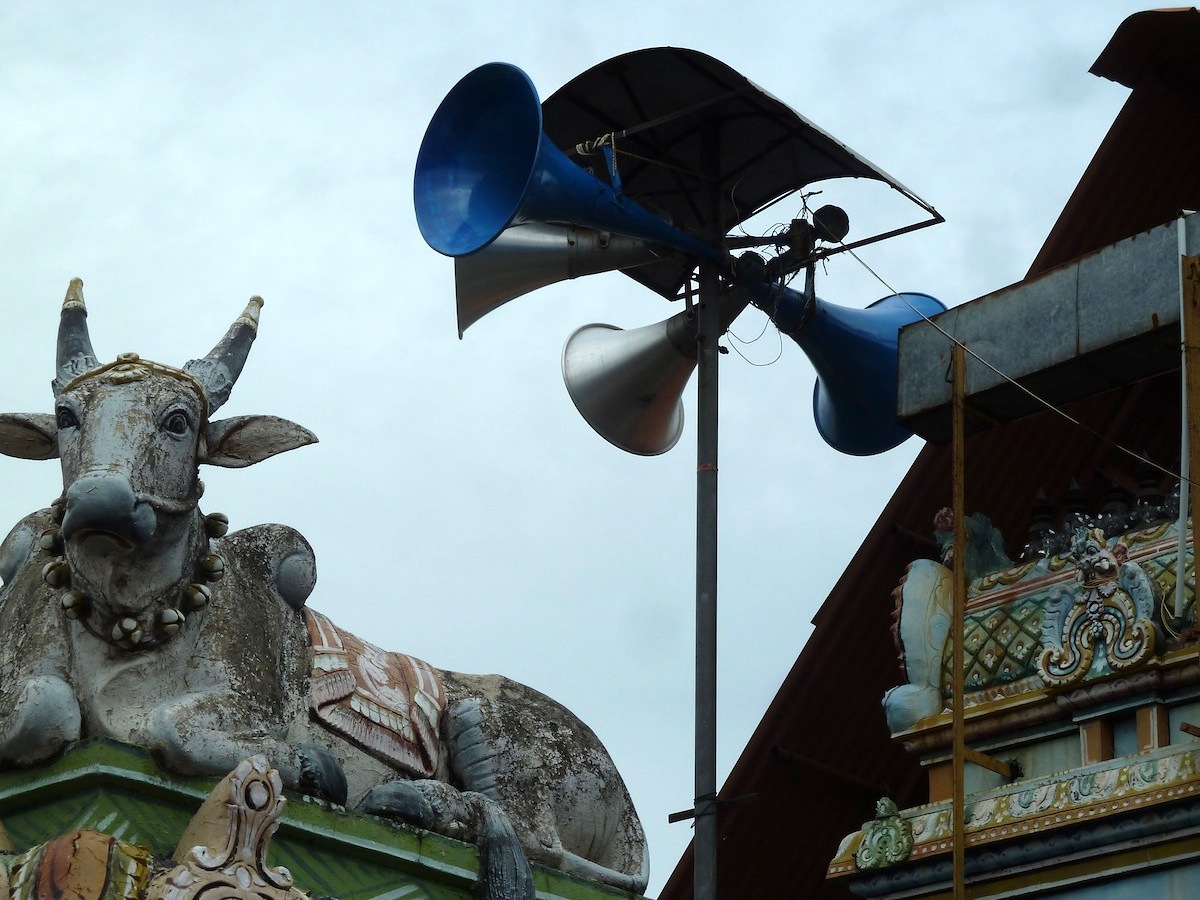
Heilige Schlaf(-störung)
5.15am, December 23rd, 2014. Tharangambadi, Tamil Nadu, India. Pitch black. The dead of night. Except that the stillness that accompanies those well-known phrases is all too conspicuously missing. Karin is pacing the floor, furious at being woken up yet again. We thought it might be peaceful here but there’s no denying it: love it or…
-

Sultanpur Bird Sanctuary
You’d be forgiven for looking at this stunning photography by Shradha Jain and thinking that we’d found ourselves in idyllic surroundings full of the sounds of nature in their purest state. Would that it were true. We rose at 5am to drive to Sultanpur, arriving at 7.15, just after the park opened. This spot was supposed…
-
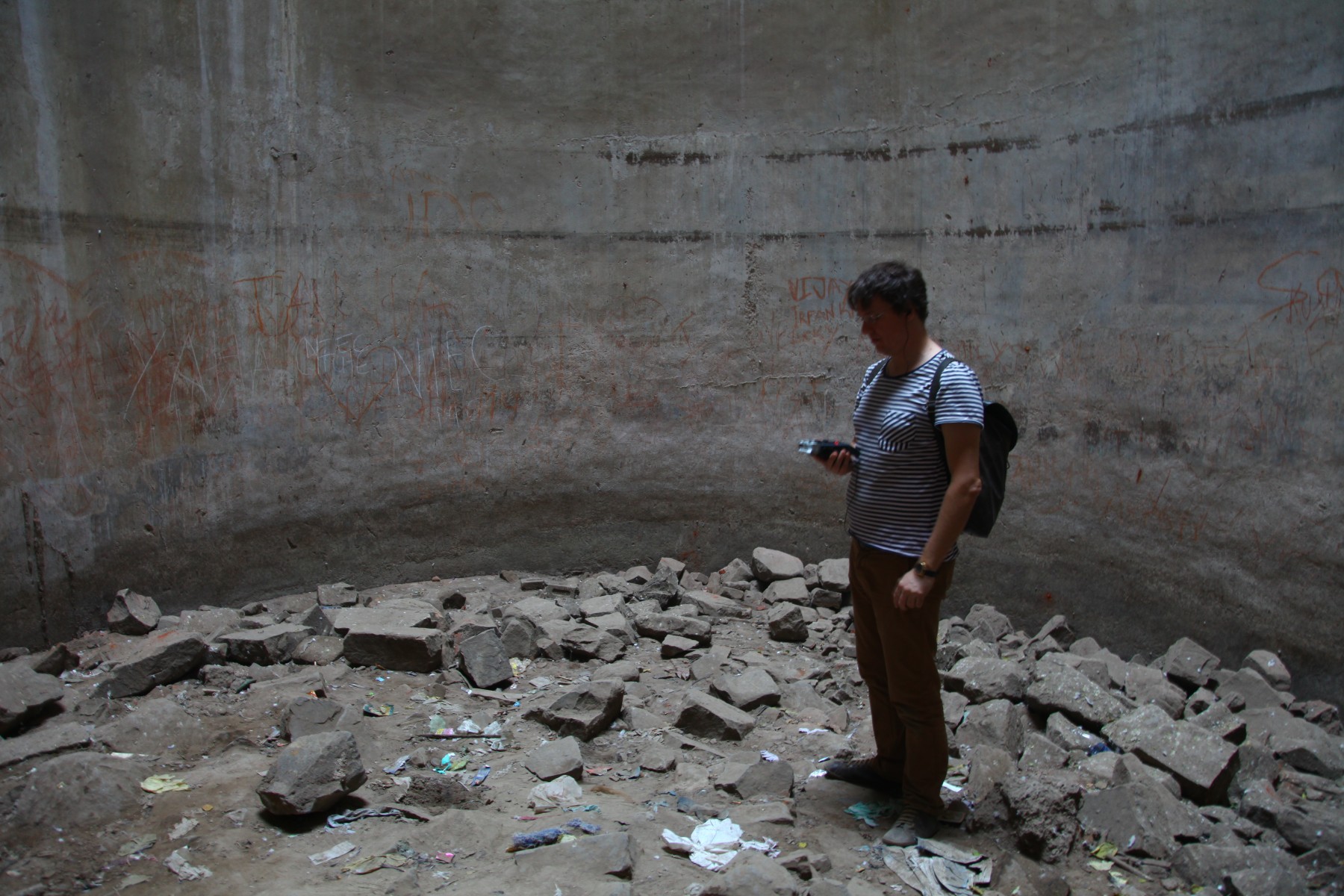
step well cistern in the heart of Delhi
This was a great find: a step well in the heart of Delhi, namely Agrasen Ki Baoli–see recordings location map. Not only did this have some interesting sonic reflections between the parallel walls you can see here but at the bottom it had a very low crawl space into the now empty water cistern. This…
-

Dilli Haat Food and Craft Bazar
Another shot of me with that far away look–no idea where that comes from because whilst recording these ambiences I feel very focussed on the present moment. In fact this type of recording process is extremely and instantly meditative for me, despite being in public and attracting a lot of stares and bemused looks from the…
-
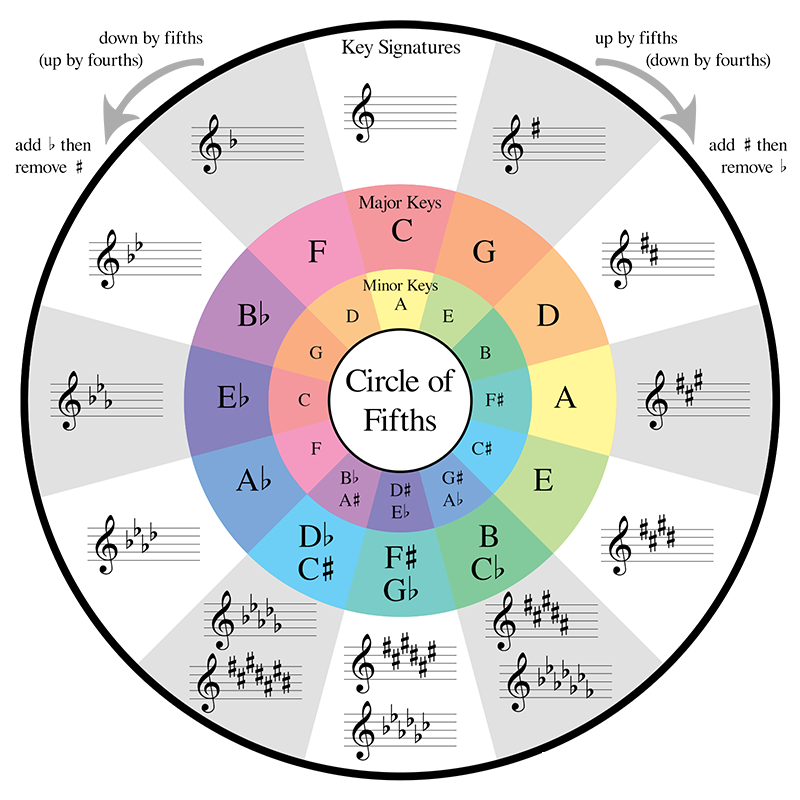
Is tonality dead?
“That autopilot mentality … – and ditto the Classic BRITS’ smorgasbord of stale musical leftovers – freeload off the hard fought-for expressive truths of others, reducing to nought those dark, sometimes unknowable, contradictions that give composers of integrity a reason to get up in the morning. Tonality is asset stripped; removed from the context of…
-
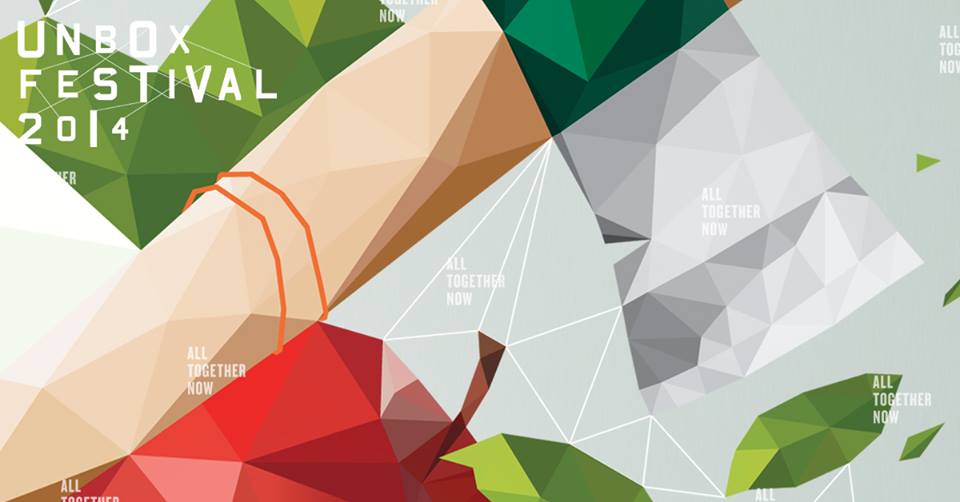
unbox 2014 Delhi
I’m looking forward to working at the Unbox Festival in Delhi at the end of this month on a collaborative project funded by the AHRC. I’ll be leading the project and creating the sound track for an installation aimed at raising public awareness of sound pollution. It’s a follow-on project from the work our team…
-

What constitutes success?
Self-mastery is the supreme victory–– much more to be valued than winning control over others. It is a victory that no other being whatsoever can distort or take away. The Dhammapada (attr. to Siddhārtha Gautama aka Buddha) What constitutes success in music and musical composition? High profile popular artists like Robin Thicke are considered runaway…
-

The voice in modern composition
There are natural limitations of the human voice which present us with challenges. Amongst these are the difficulty of pitching by ear—as opposed to most instruments’ fingering or key systems—and the concomitant difficulty of realising fast moving lines. There are also the demands and constraints of the specifically Western classical vocal technique, which to at…
-
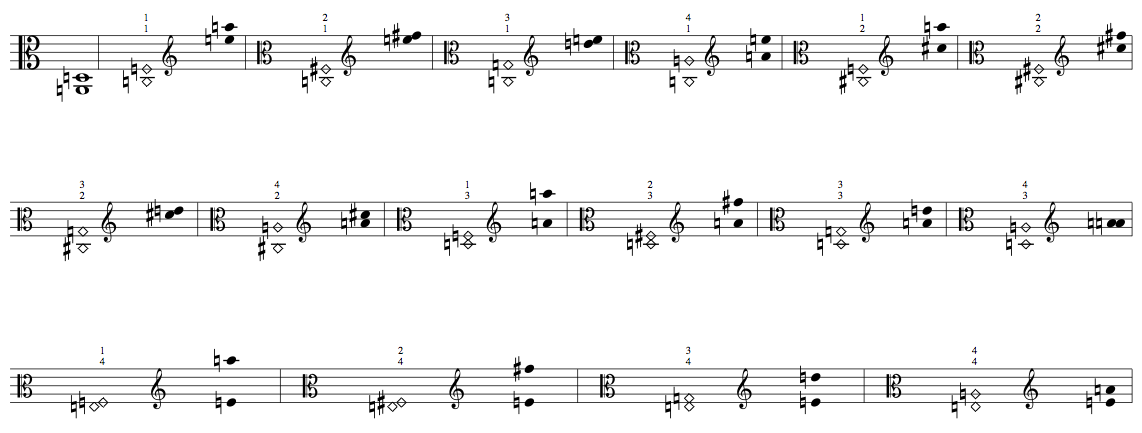
Lisp Code to generate double harmonics
In response to Russell Snyder’s request for my code to generate double harmonics (natural) on the viola d’amore, I’ve abstracted the following from my piece 24-7: freedom fried. This was written for Garth Knox on the viola d’amore and was featured on a 2010 Wergo DVD. Here’s an extract: Apologies for the light commenting only…
-
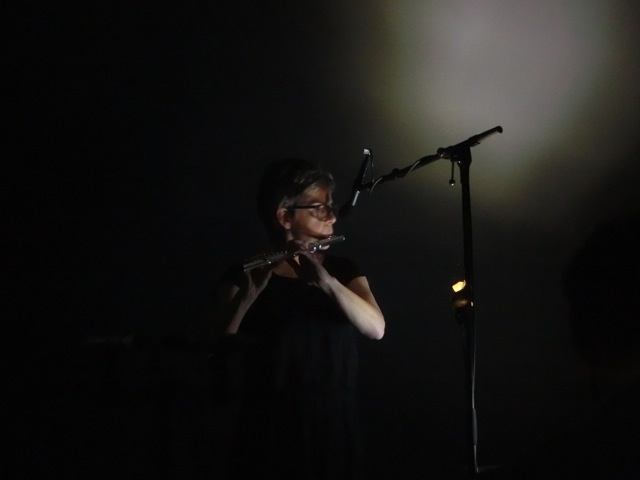
hyperboles are the worst thing ever
(aka Epimenides would have been gutted)
AmsterdamSince August 2013 I’ve been working on hyperboles, a series of pieces that allow musicians to tweak the algorithm parameters that are used to generate the work’s score, sound files, and real-time processing. A software interface allows the creation of different versions of the piece with durations ranging from c. 15 to 52 minutes. It’s an invitation…
-
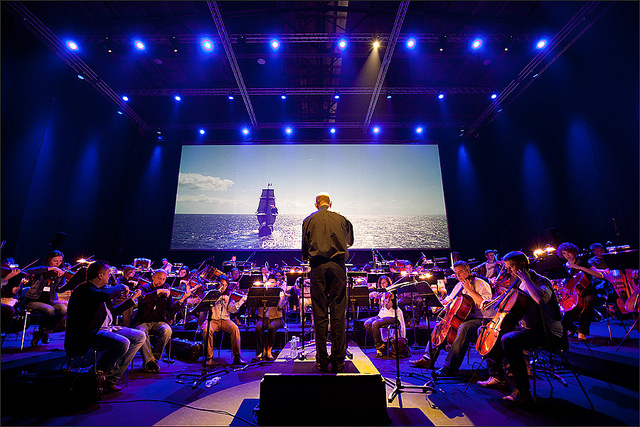
film music composition feedback
Some facebook posts and resultant comment threads are worth saving. This one, prompted by having to grade some film music composition, is, in my opinion one of those, mainly because of the intelligent and insightful contributions of my facebook friends, which include both old students and composer/musician colleagues alike: A really old chestnut that’s liable to…
-
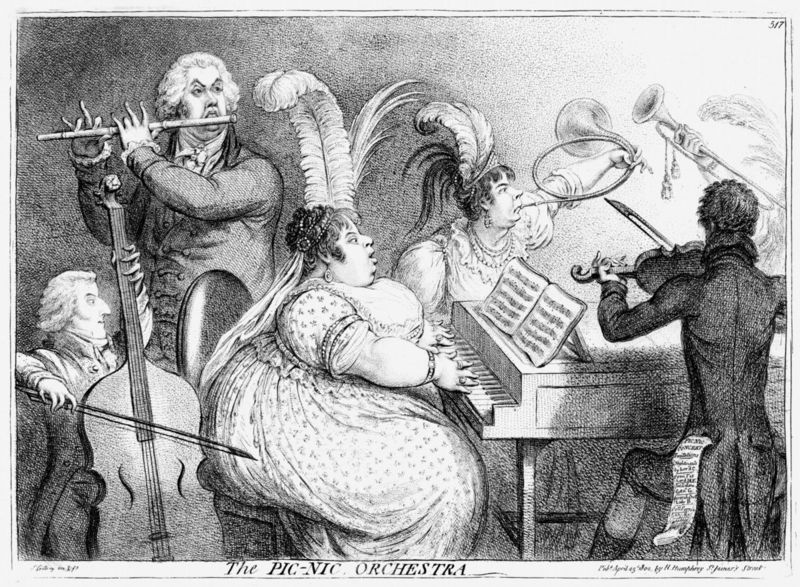
Is there a common practice in modern composition today?
If we look back to the compositional world surrounding Bach and Handel, or Mozart and Haydn, most people will see more stylistic commonalities than divergences. Is this merely due to historic distance, i.e., that the passage of time makes us less sensitive to difference and more likely to aurally homogenise widely varying styles? Or was…
-

Music Theory MOOC
This course, from the University of Edinburgh’s Reid School of Music (recently ranked first in the UK), is suitable for those who have never studied music academically. It will introduce you to the theory of Western music, providing you with the skills needed to read and write Western music notation, as well as to understand, analyse, and listen informedly.…
-
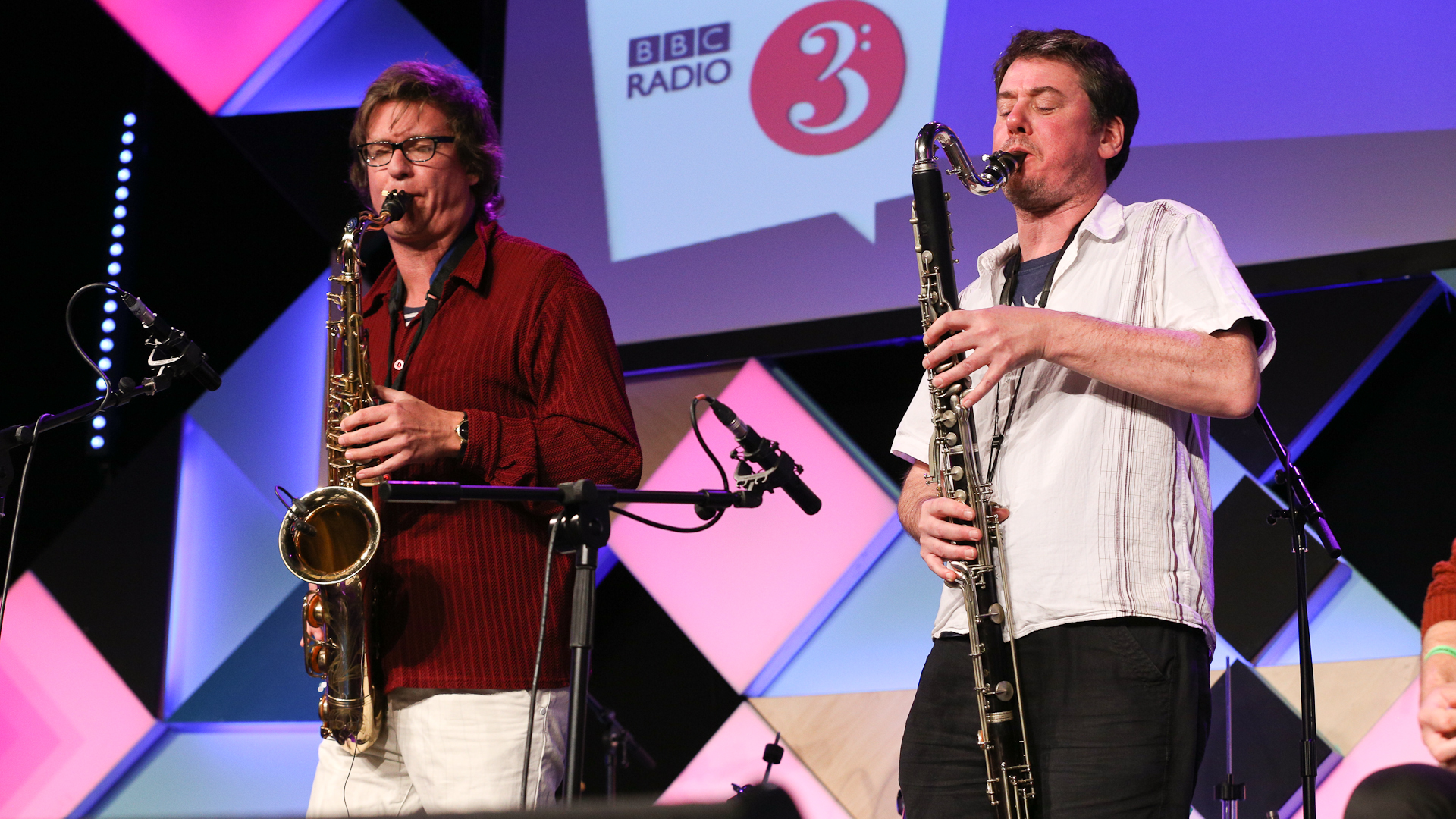
edimpro on BBC Jazz on 3 from the Edinburgh Festival
On August 18th 2014, edimpro—the free improvisation group I started at the University of Edinburgh in 2009—played at an Edinburgh Festival live broadcast concert for the BBC’s Jazz on 3 programme. The lineup was Jack Weir (electric guitar), Lauren Hayes (piano and electronics), Karin Schistek (keyboard), Pete Furniss (bass clarinet), and myself (tenor sax and…
-
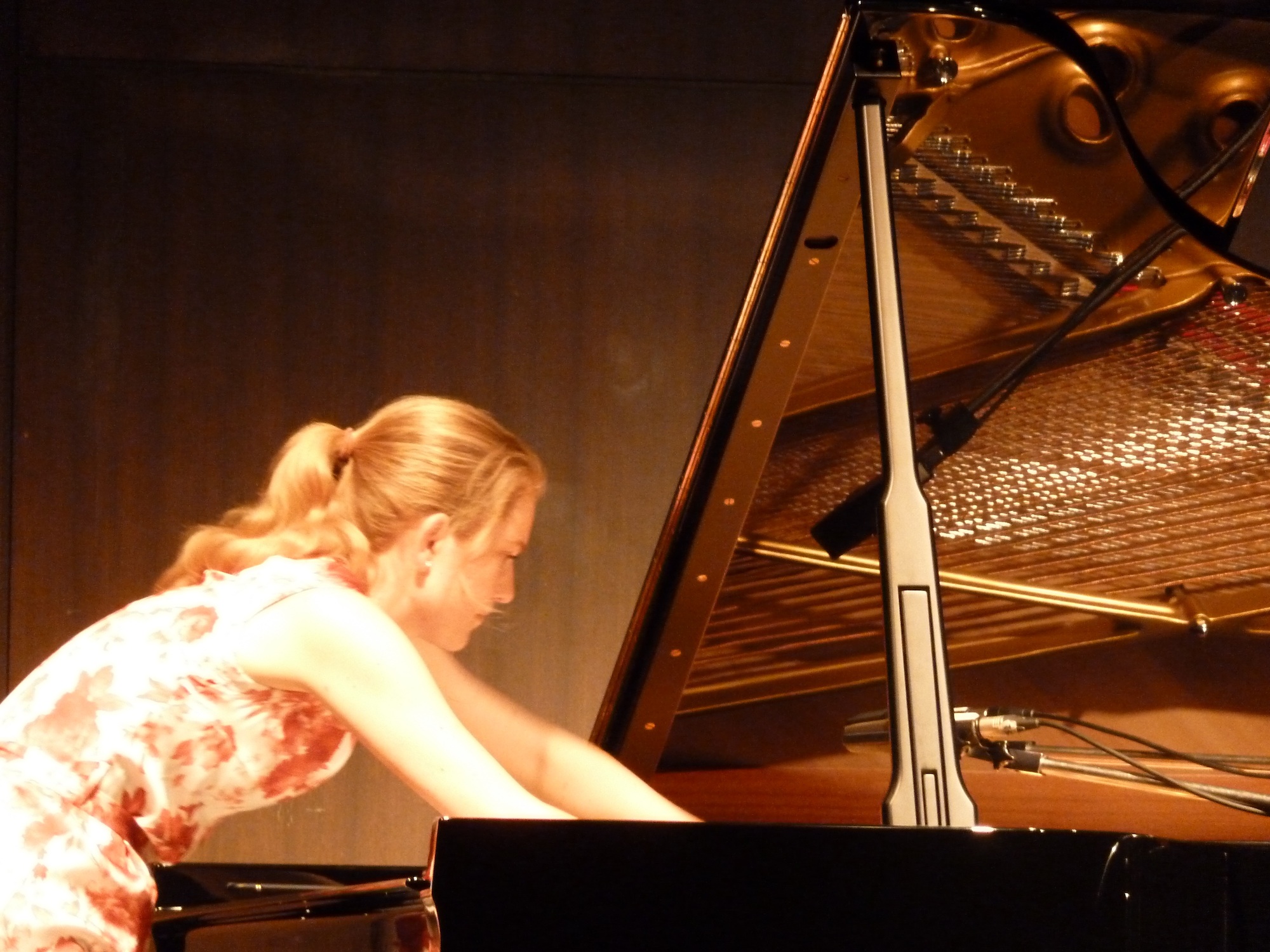
for rei as a doe
My 40-minute algorithmic composition for piano and computer came out on the Aural Terrains label this month. Rei Nakamura premiered it in London (partial version) and Stockholm (complete version) in 2012. Karin Schistek played it in Bangkok, Trento (Italy), and Edinburgh before we took to the Reid Studio to record it on March 3rd 2013. Booklet text…
-
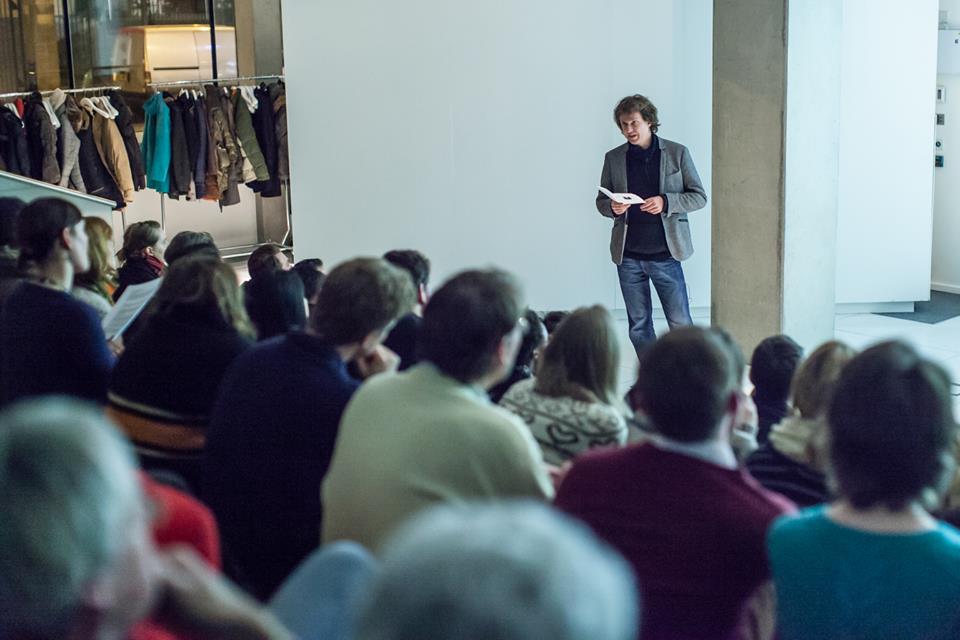
PechaKucha talk
On December 6th 2013, along with some colleagues and old students, I contributed to a PechaKucha evening in Edinburgh devoted to New Music. The 20x20second slide format is a challenge. I wanted to get in as much about my algorithmic composition work as possible, so I scripted it, against my better instincts and the advice of…
-
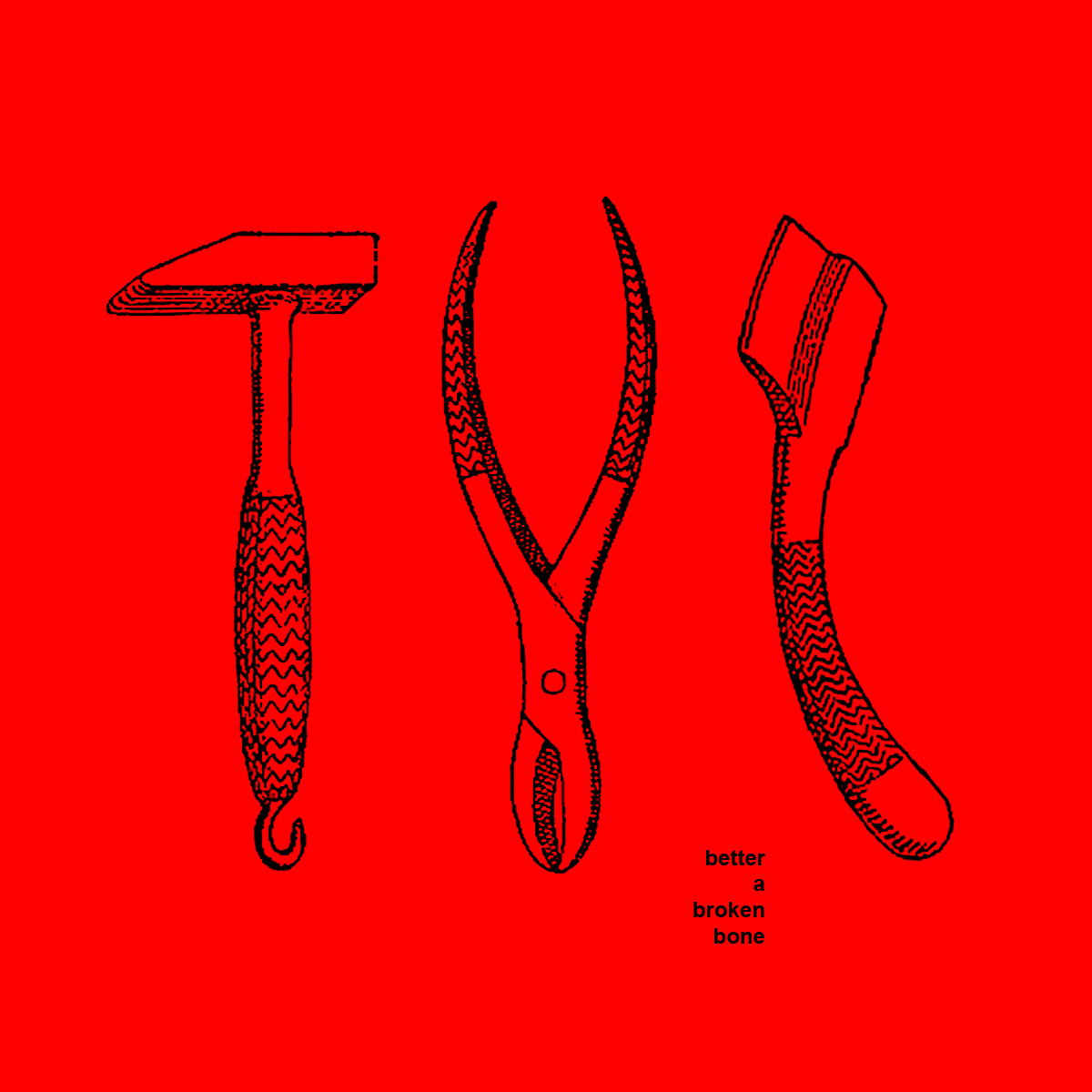
better a broken bone
A new release of freely improvised music featuring me on saxophones and electronics, Christos Michalakos on drums and electronics, and Jack Weir on electric guitar is now available on the reid label. Christos did the graphic design and came up with the title, which I believe came from Majory Allen’s phrase “Better a broken bone than…
-
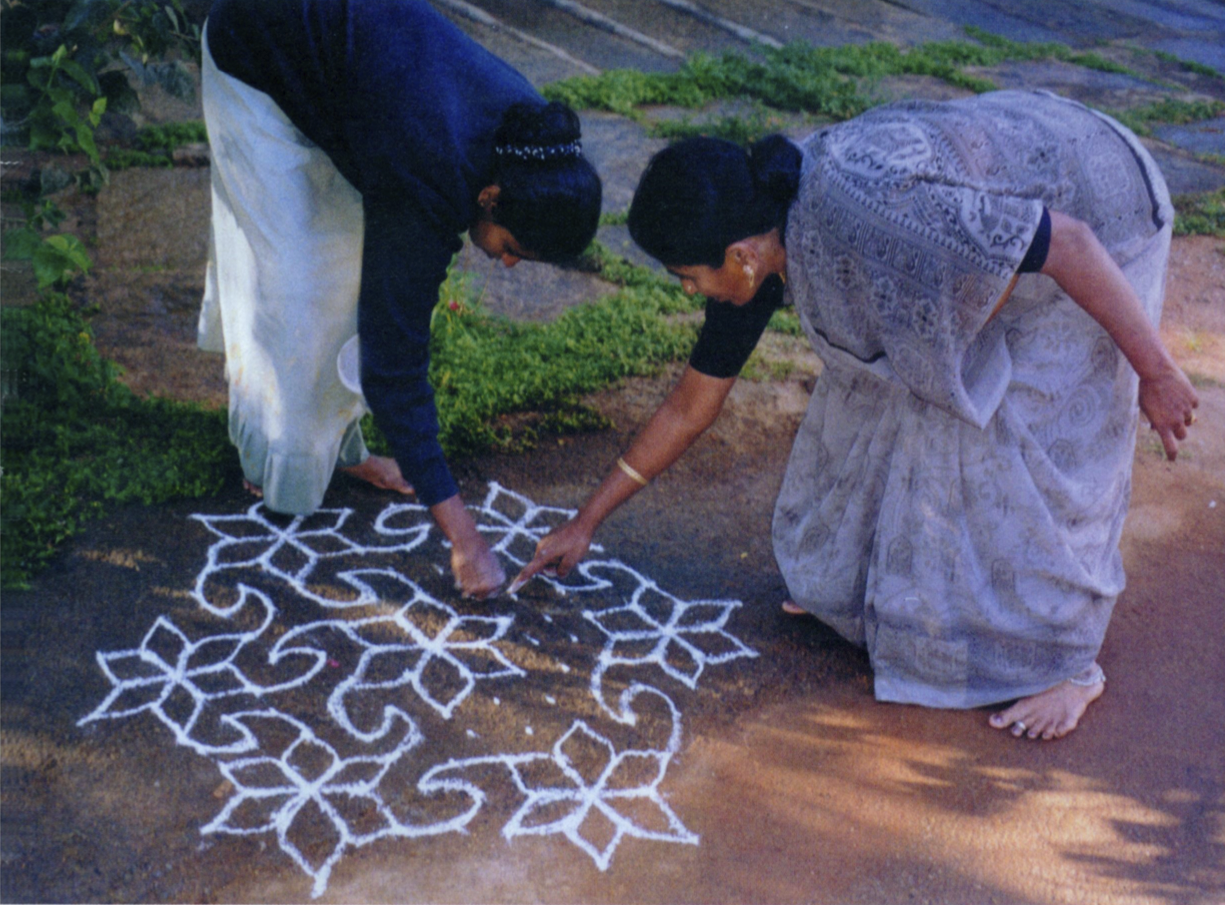
Kolam
The self-similar properties of visual patterns generated by Lindenmayer-Systems can be apprehended holistically almost instantaneously. Even simple rules can generate pleasing patterns of the sort you might see on cloth or as the Kolam figures drawn in front of southeast Indian houses. One of the problems of rendering Lindenmayer-Sequences in a musi-linear form is that…
-
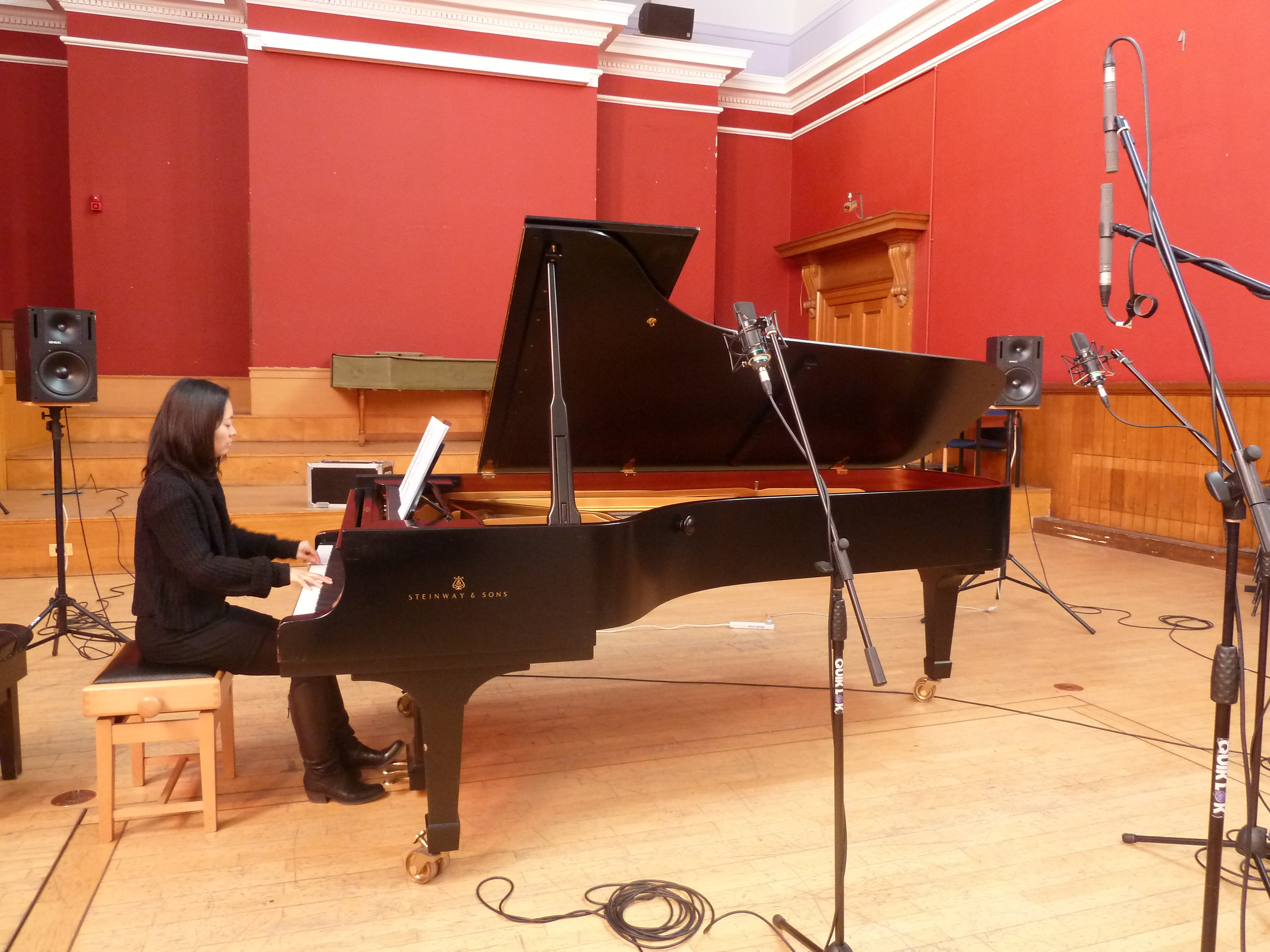
Bad Alchemy review of slippery chicken
Rigobert Dittmann’s Bad Alchemy 75/12 review of my slippery chicken release has to be the best I’ve every received. Not because it’s the most flattering, but because the writing style is both hilarious and somehow deeply evocative of the music. Immediately below is the original text; it’s followed by my translation of the German. MICHAEL EDWARDS Algorithmic…
-

slippery chicken recordings
A multi-format, surround and stereo recording of five of my compositions made with slippery chicken is now available for order or download. Made possible by a grant from the AHRC, the recording accompanies the open-source release of my algorithmic composition software and includes liner notes in a beautiful poster-style print made by Timothy Donaldson. Liner notes below. slippery chicken…
-
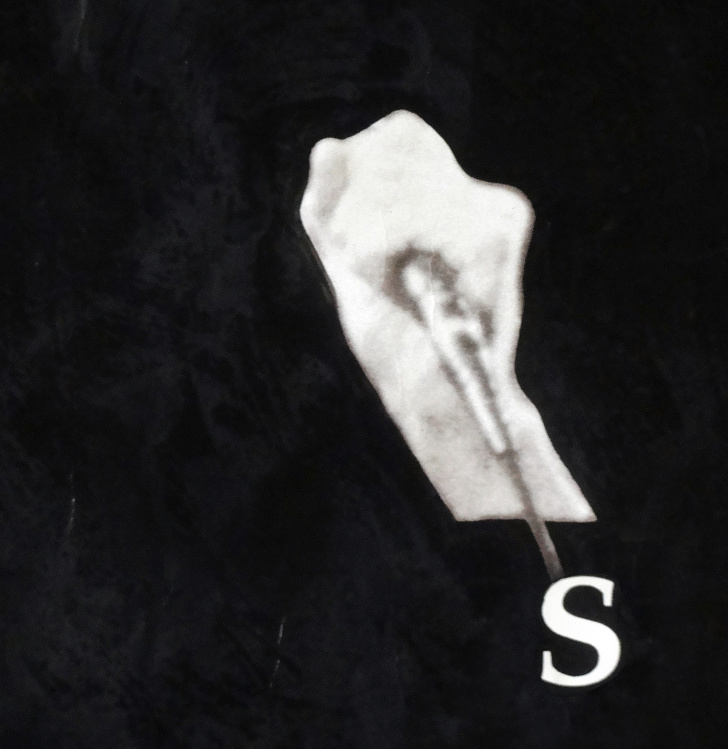
not us
Not Us by Not Us Fritz Welch and I have just released not us, a studio album made in my Edinburgh flat (in the sauna, actually). Recorded and mixed collaboratively between 2010 and 2012 it features two extended tracks using various percussion instruments played by Fritz and contributions on tenor saxophone and computer by myself.…
-

lapslap – granita
Our fourth and final (for this series at least) lapslap CD is now out on Leo Records. As the booklet text below attests, in contrast to our previous CDs I made the form for this one-hour piece in post-production. It was a labour of love but I wanted something special for this final CD and think it…
-

Communications of the ACM article on Algorithmic Composition
In 2009 I was approached by the editor of the Communications of the Association for Computing Machinery—the world’s oldest computer science journal apparently—to write an article on algorithmic composition. He was looking for an overview for readers with a general interest rather than a specialist paper dealing with ground-breaking research. The article was eventually published in 2011 and…
-
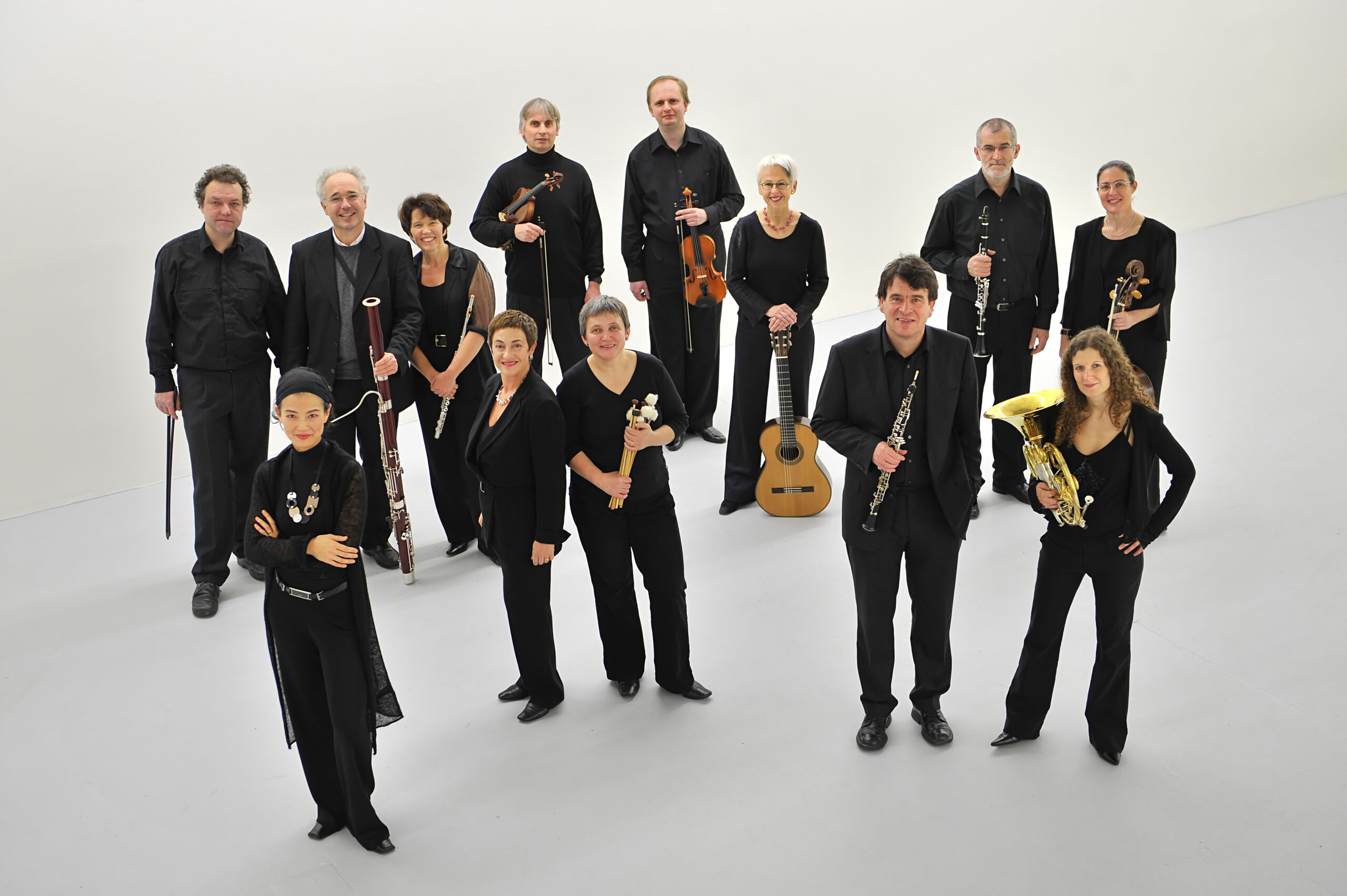
you are coming into us who cannot withstand you, Freiburg
For Ensemble Aventure, Freiburg, Germany. The title of this piece is taken from the poem “Final Notions” by Adrienne Rich (1929-): It will not be simple, it will not take long It will take little time, it will take all your thought It will take all your heart, it will take all your breath It…
-
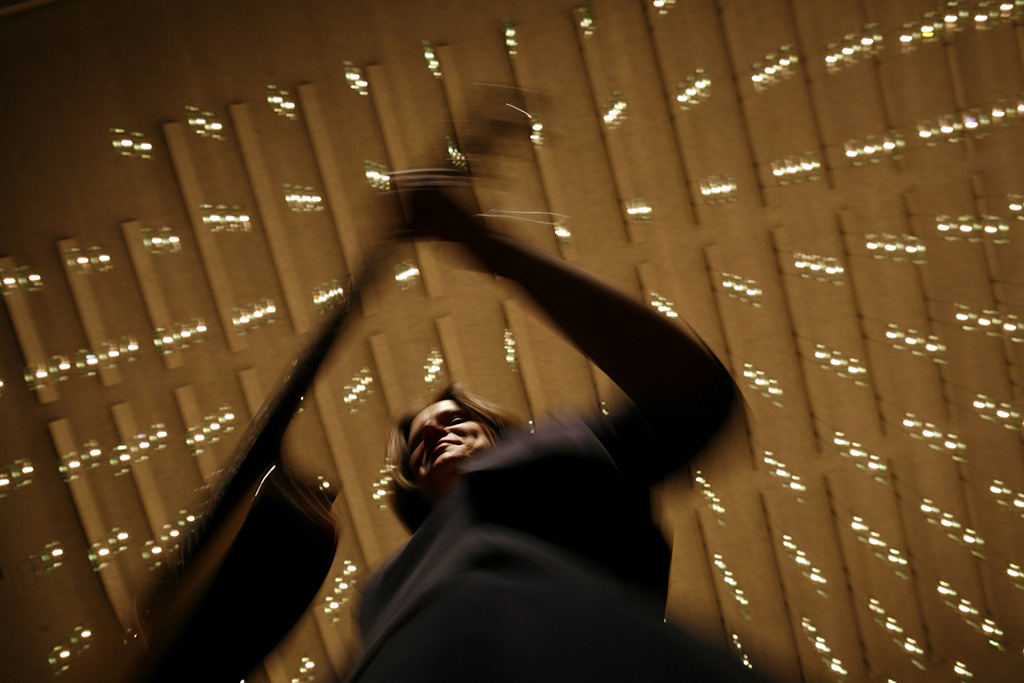
don’t flinch
Essentially, “don’t flinch” for guitar and computer is a three-part mensural canon, but similar to late Mediaeval and Renaissance isorhythmic techniques, melodic material is repeated along with a rhythmic sequence of differing length. This is one of the simplest algorithms for a piece I’ve ever written, so I thought it would make a good candidate…
-
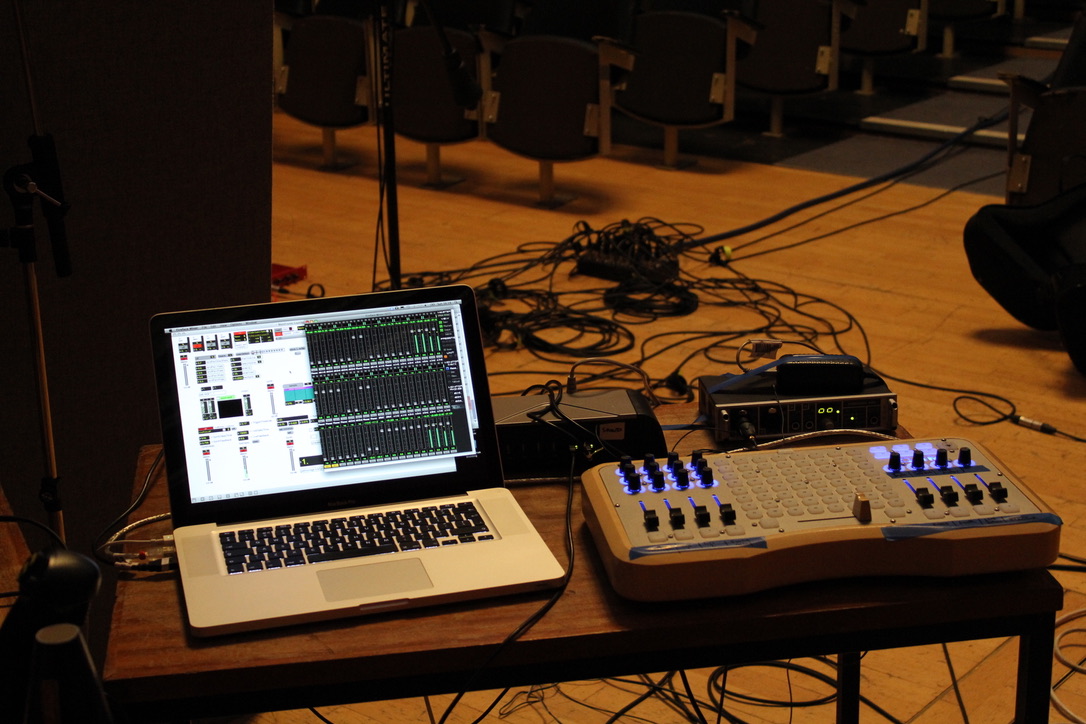
lapslap recording sessions, september 2010
lapslap are Michael Edwards (saxophones, laptop), Martin Parker (horns, laptop), and Karin Schistek (piano, Nord synthesiser). We recorded free improvisations in the Reid Hall from the 8th to the 12th of September 2010. This was to be our fourth album on Leo Records. On September 11th, the American percussionist and 9/11 survivor Fritz Welch visited…
